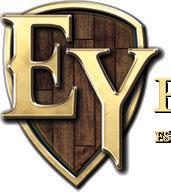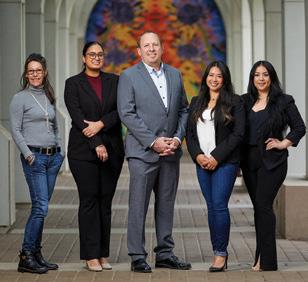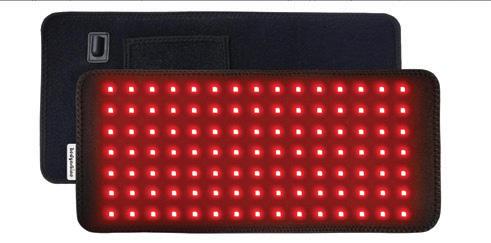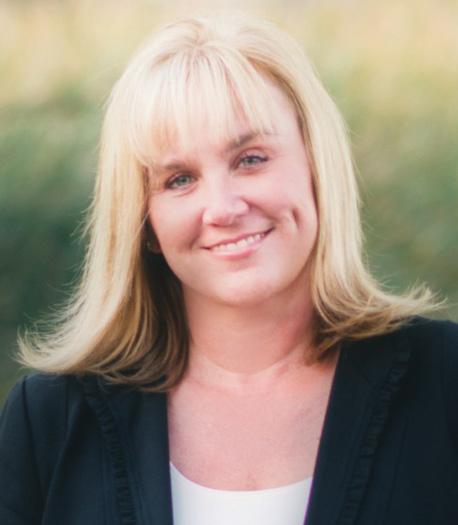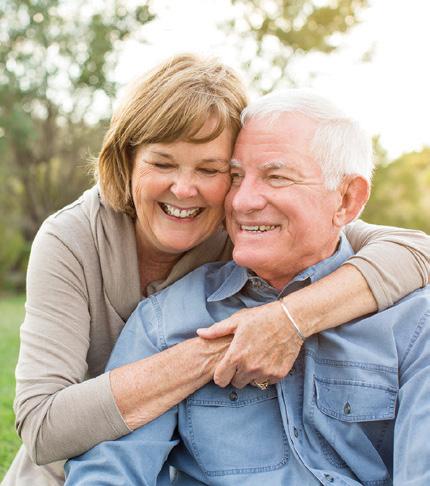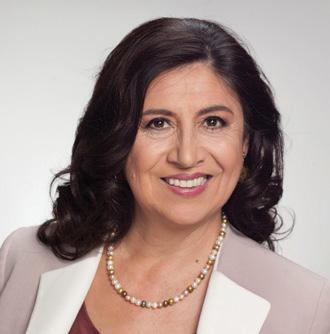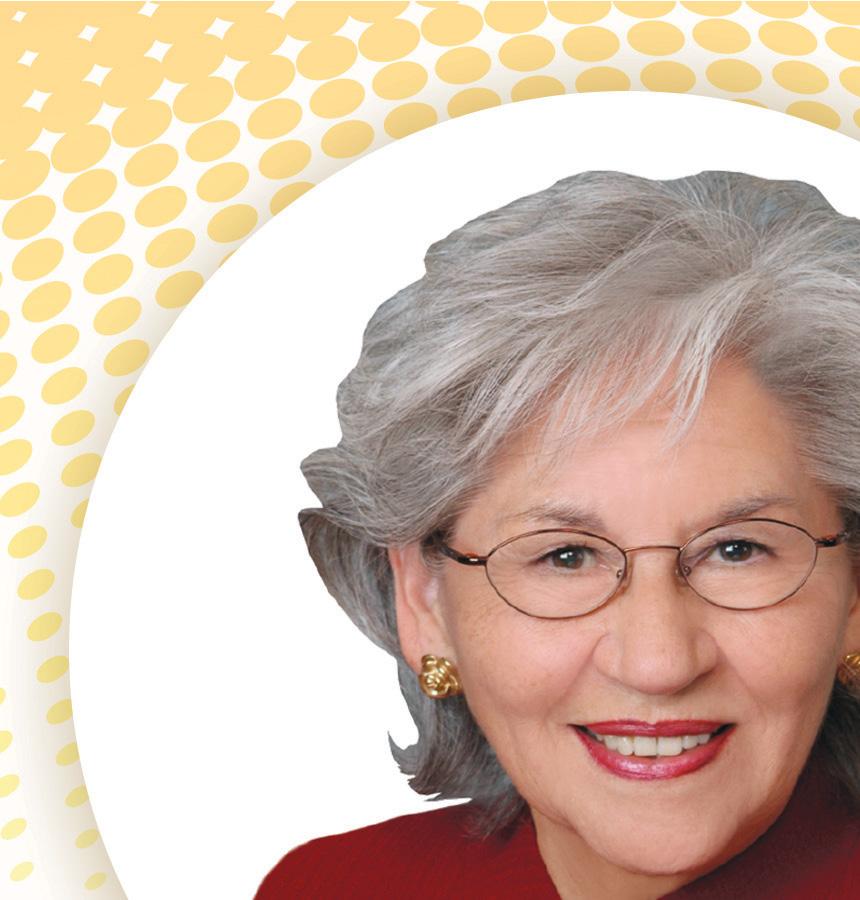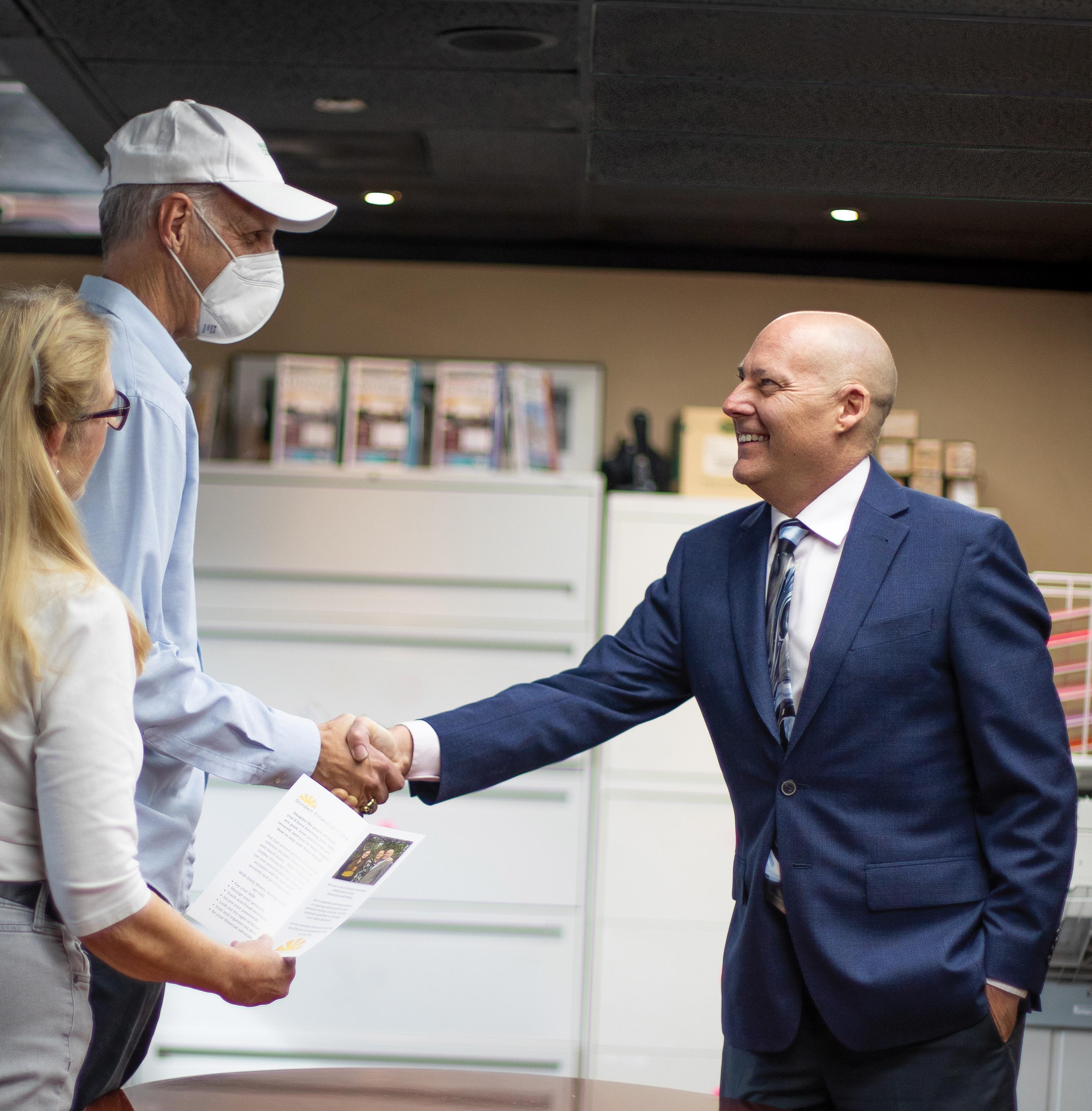




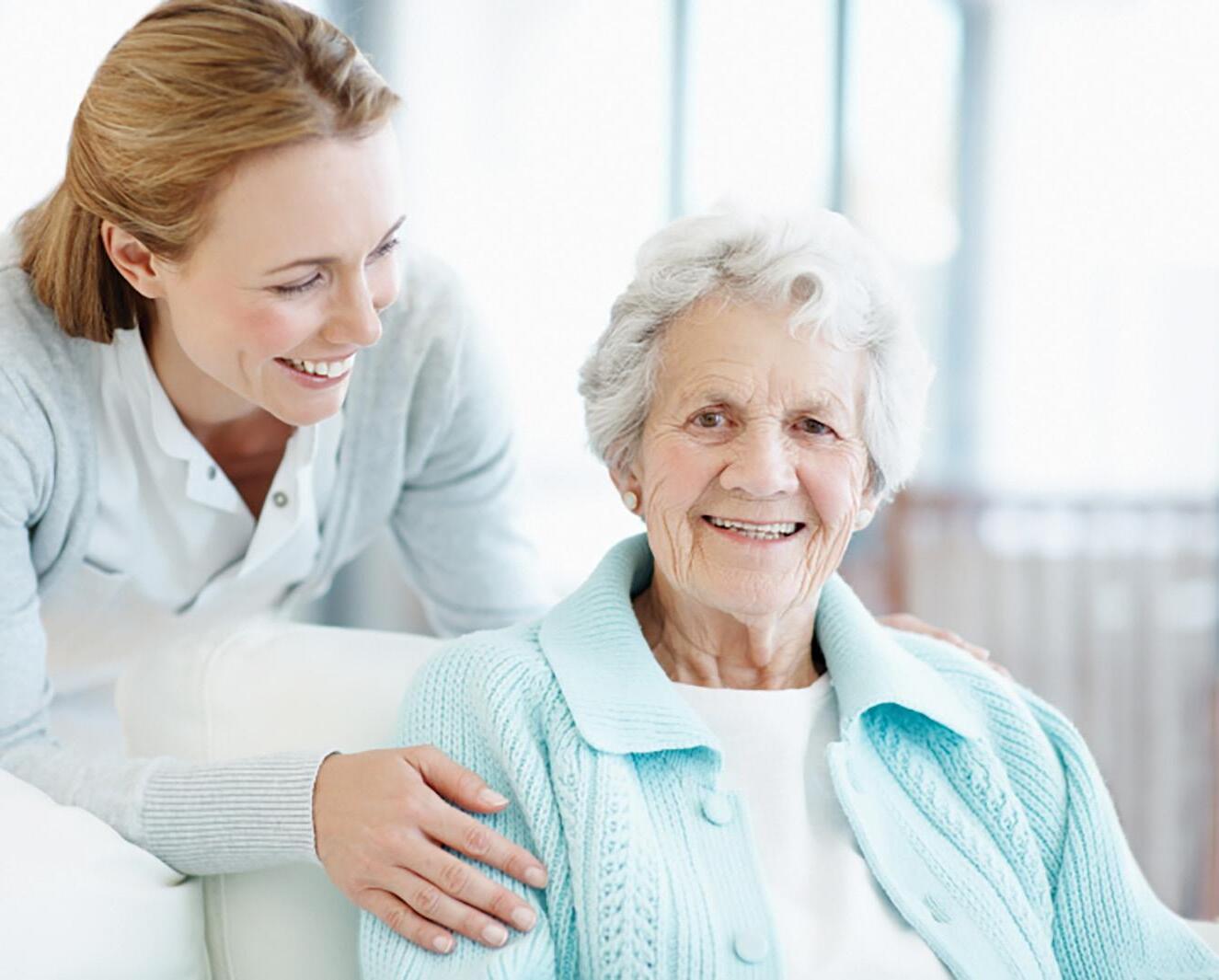
• Alzheimer & Dementia Care
• Supervised Socialization
• Engaging Cognitive Based Activities
• Daily Stretching & Chair Yoga Exercises


We opened our door in late 2016 and have continuously thrived in serving our community members who are living with Alzheimer’s, dementia and other cognitive issues. We pride ourselves in having long-term caregivers, a consistent director from inception and clients who flourish by participating in our daily program.
While our main focus is providing a safe, loving environment of supervised socialization for the impaired, we strive to assist caregivers in many areas as well.
Not only do we give respite, but we also offer guidance and resources for financial assistance, tips on managing the progression of these diseases and placement referrals for when their loved one can no longer live at home.
• Weekly Music & Singing with Visiting Musician
• Beautiful Compound for Walking/Gardening
• Enclosed Patio for Outdoor Gatherings
• Daily Animal Therapy


Golden Financial Care, a Brentwoodbased daily money management organization, offers one service above all else: peace of mind.
“We help people pay their bills when it’s time to get a helping hand with their checkbook,” Golden Financial Care founder Perry Chicaine says of daily money management. “We also look out for signs of fraud and provide password protection services.”
Although daily money management services can benefit anyone, Chicaine says he prefers to work with seniors who need a “helping hand.” He is also the treasurer of the East County Senior Coalition, a local nonprofit whose stated mission is to “improve the lives of seniors in our community.”
“I love working with seniors,” Chicaine says. “They bring so much life experience and can share their stories with a sense of humor.”
Being a daily money manager is akin to being a personal bookkeeper, according to Chicaine. It gives clients clarity as to where their money is going. Prior to founding Golden Financial Care, Chicaine played a number of other roles in financial services, including managing a credit union and being a financial representative at a major brokerage. He is also a longtime stock and option trader. All of this gives Chicaine unique insight into the ins and outs of finances, particularly when it comes to financial organization.
Golden Financial Care offers a variety of financial services, including assistance with organizing important financial documents. While a daily money manager will not do your taxes, Chicaine says, he and his team assist clients in keeping their documents in order, thus making tax preparation easier. This service extends beyond tax documents to also include organization of medical documents, banking documents and the like. Golden Financial Care provides its customers with a fire- and water-resistant locking file box to keep documents safely stored in a single location.
Chicaine says he first heard about daily money management when he stumbled across the profession in an article he was reading on CNBC. When his wife became ill a few years ago, it gave him the opportunity to reassess his career and he opted to pivot into daily money management because he says it allowed him to help others in a meaningful way.
“I know all too well how tough it can be for people to keep their financial lives in order,” Chicaine says. “Therefore, I have made it my personal mission, and by extension my company’s mission, to relieve stress from as many people as possible as we bring clarity and order to their daily monetary affairs while helping them steer clear of fraud.”
To this end, some of the services Chicaine’s company offers are meant to teach clients how to avoid fraud while also helping to secure their personal information. Chicaine hosts seminars that provide free information on how to stay safe, particularly when it comes to email and text message scams, which he says are becoming more prevalent. He also is creating a YouTube channel that would make these informational seminars more widely available.
Golden Financial Care also offers clients with advanced password protection services to keep their personal information safe.
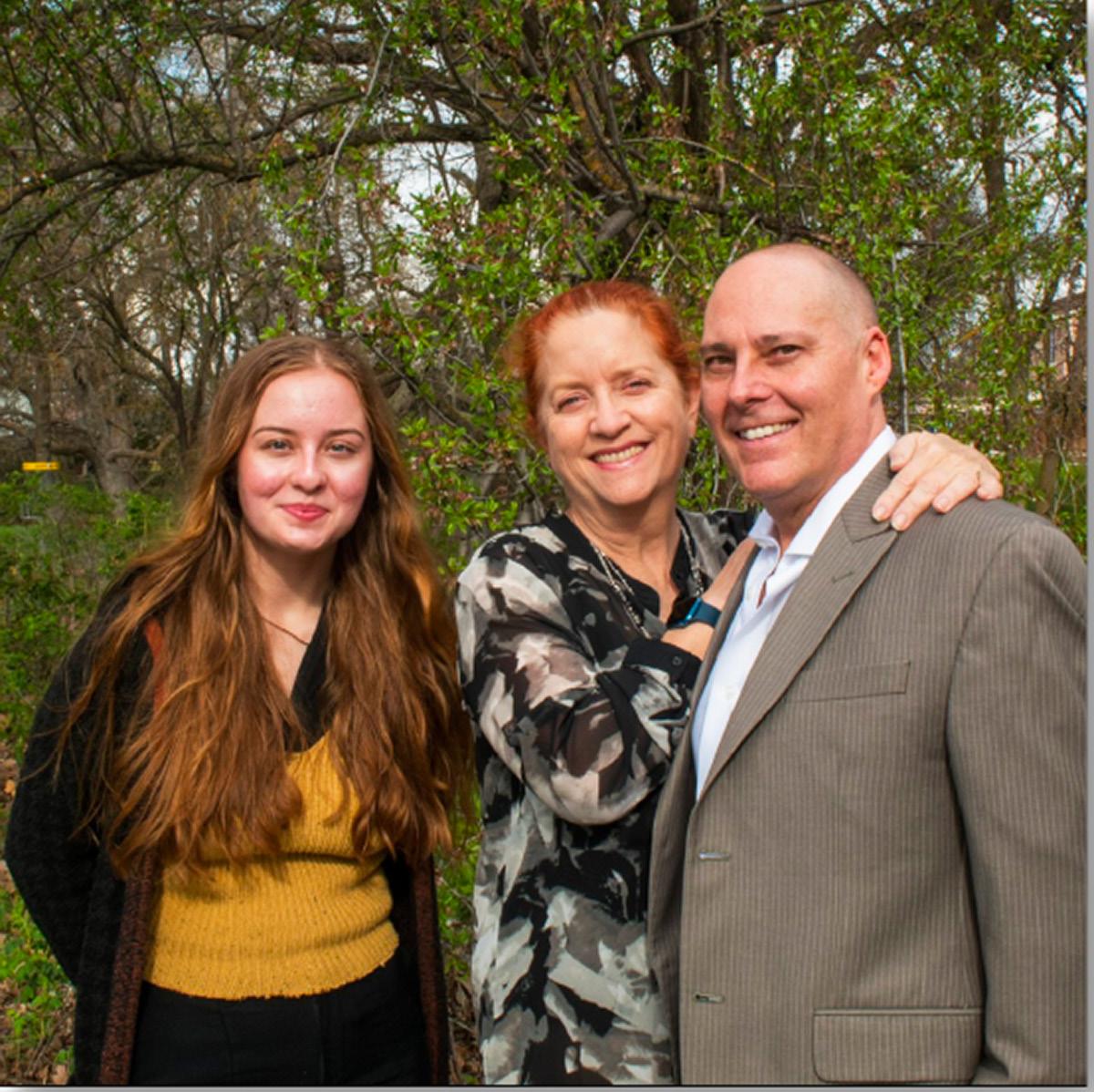
“We offer our clients secure vault software,” Chicaine said. He says he often sees clients who have a notebook near their computer with all their passwords written down in it, which provides would-be fraudsters with easy access to all of their information if they were to get ahold of that notebook. Instead, the vault software cuts down on a client’s need to remember passwords at all by storing all their passwords for them behind military-grade encryption. The only password they need to remember is the one to the vault software.
“I take client data security very seriously and have implemented extensive measures to ensure that my clients are safe with my company,” Chicaine says. “Most daily money managers don’t take these expensive steps.”
Golden Financial Care’s services are offered remotely or in person at a client’s home – the company does not keep an office. Its employees are trained members of the American Association of Daily Money Managers, according to Chicaine. This means they have been subjected to thorough background checks and are insured and bonded, being held to “a high standard” of ethics and practices.
Outside of his work with Golden Financial Care, Chicaine is active in the Brentwood community. He is on the board of directors of the Chamber of Commerce and is a member of the Lions Club. He has also been a part of the Rotary Club of Brentwood as well. In addition, Chicaine has organized local events searching for live organ donors “to save lives in our community,” and plans to do more.
“My business and I are here to stay for at least the
next 15 years,” Chicaine says. “We are the resource in East County.”
More information about Golden Financial Care can be found at www.goldenfinancialcare.com or by calling 925-418-1020.


Glenn Huxtable remembers his favorite assignment with the Rotary Home Team like it was yesterday.
He went to a house in Summerset to help a senior friend of his in their mid-70s move their stove and fridge.
“She asked if we can move her stove and refrigerator out,” Huxtable said. “I said, ‘Yes, we can.’ I thought she was going to change it out or something, and she says that her cats knocked all of their toys under there and she couldn’t get them anymore.”
Huxtable and his team went to the house and moved the refrigerator. She swept under and got the cat toys out, then they put the stove and refrigerator back. Things like this are fairly common for them.
The Rotary Home Team started in 2010 by a Rotary Club in Lafayette and has since expanded in Contra Costa County to serve more than 20 cities, including Brentwood in 2016 and Oakley in 2019. The team members
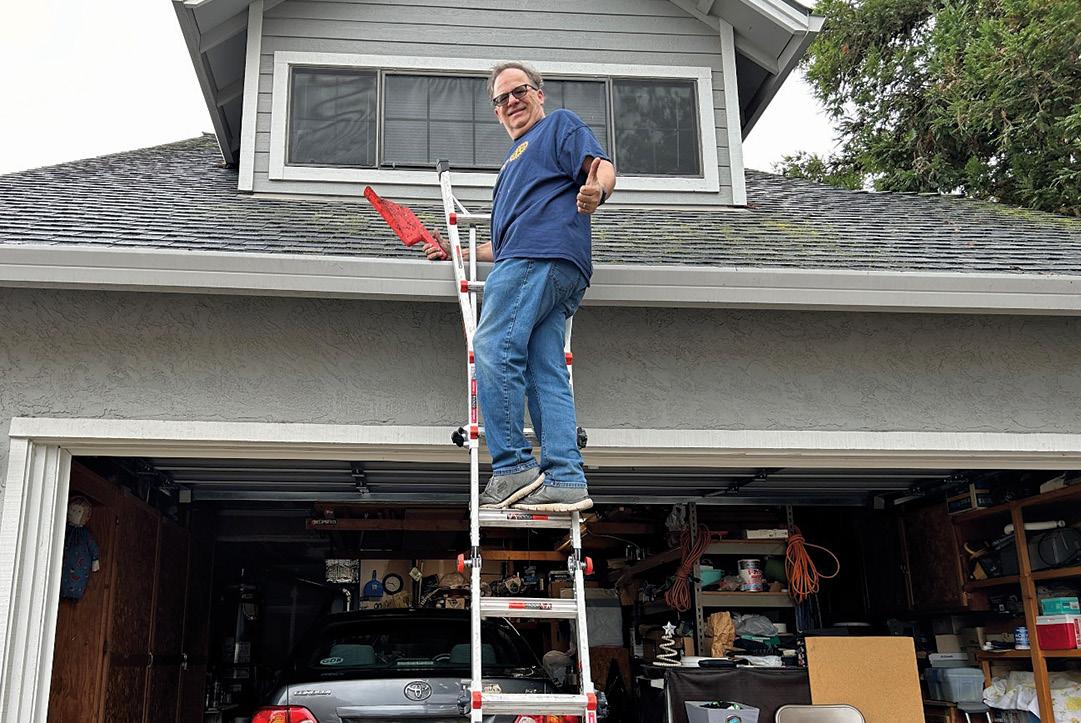
are all volunteers, and the service is provided free of charge.
“The Rotary Home team is a group of our club members that assist our local seniors, for free, in basic home repairs and maintenance,” Huxtable explained. “The goal of Rotary Home Team is to help where we can, to keep our citizens safe and living independently. We take care of items that might be beyond their current abilities or comfort level.”
The Brentwood Rotary Home Team also provides service to those in Discovery Bay and Byron as needed because neither of the two towns has its own Rotary Club.
The Rotary Home Team mostly focus their work with senior citizens to promote safety and independence, helping those who are unable to do some basic home mainte-

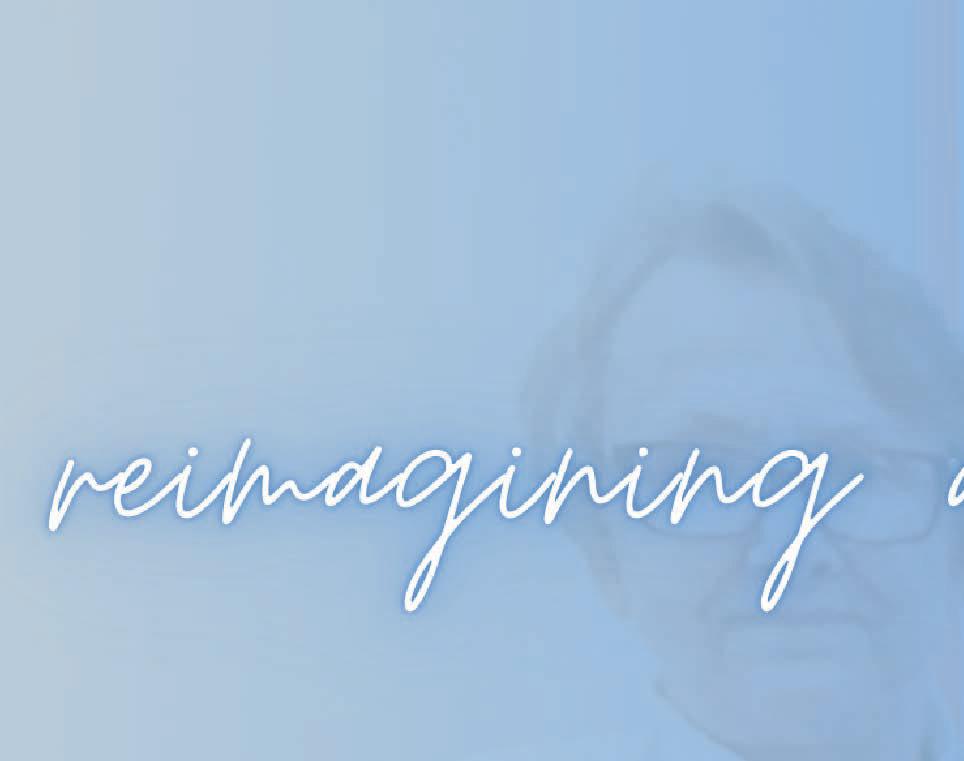



nance like climb ladders to fix a light bulb or change the batteries on the smoke detectors on the ceiling.
According to Huxtable, in the last year, the Rotary Home Team assisted more than 50 seniors in over 100 tasks like hanging artwork, re-hanging bathroom towel bars and cabinet doors, replacing heating and air conditioning filters and even fixing leaking toilets and faucets.
“The most common thing we do is change smoke detector batteries,” Huxtable said. “We generally ask that they have the item needed, usually batteries and a ladder. If they don’t have a ladder it’s okay, we’ll bring a ladder. We want to make sure they’re safe.”
Huxtable adds that the most calls they had for a day was about 20, while the least
was seven.
Along with the work for those who call in, the Rotary Home Team also adds a sense of community on their calls. While one person does the necessary work, the other person on the call is checking in on the customer, making sure they’re okay, even if they just need to be an ear for someone to talk to.
“If somebody looks like they don’t have any food and the house is grungy because they can’t take care of it, maybe we’re going to see if there’s something else we can do beyond the scope of what we’re doing,” Huxtable said.
Oakley doesn’t have as big a senior community compared to Brentwood. But, according to Aaron Meadows, the Oakley Rotary Home Team still gets the same job done as needed.
“It’s about helping the seniors maintain their homes and doing tasks for them that they wouldn’t be able to do necessarily on their own.” Meadows said.
Those interested can call the Rotary Home Team’s toll-free number at 888-2045573 and leave their name, phone number, city and what kind of work that they need done on the recorded line and a volunteer will call them back to discuss and schedule the work that needs to be done.
They can also be found at www. RotaryHomeTeam.com.
To view a video and a slideshow, visit www.thepress.net/multimedia
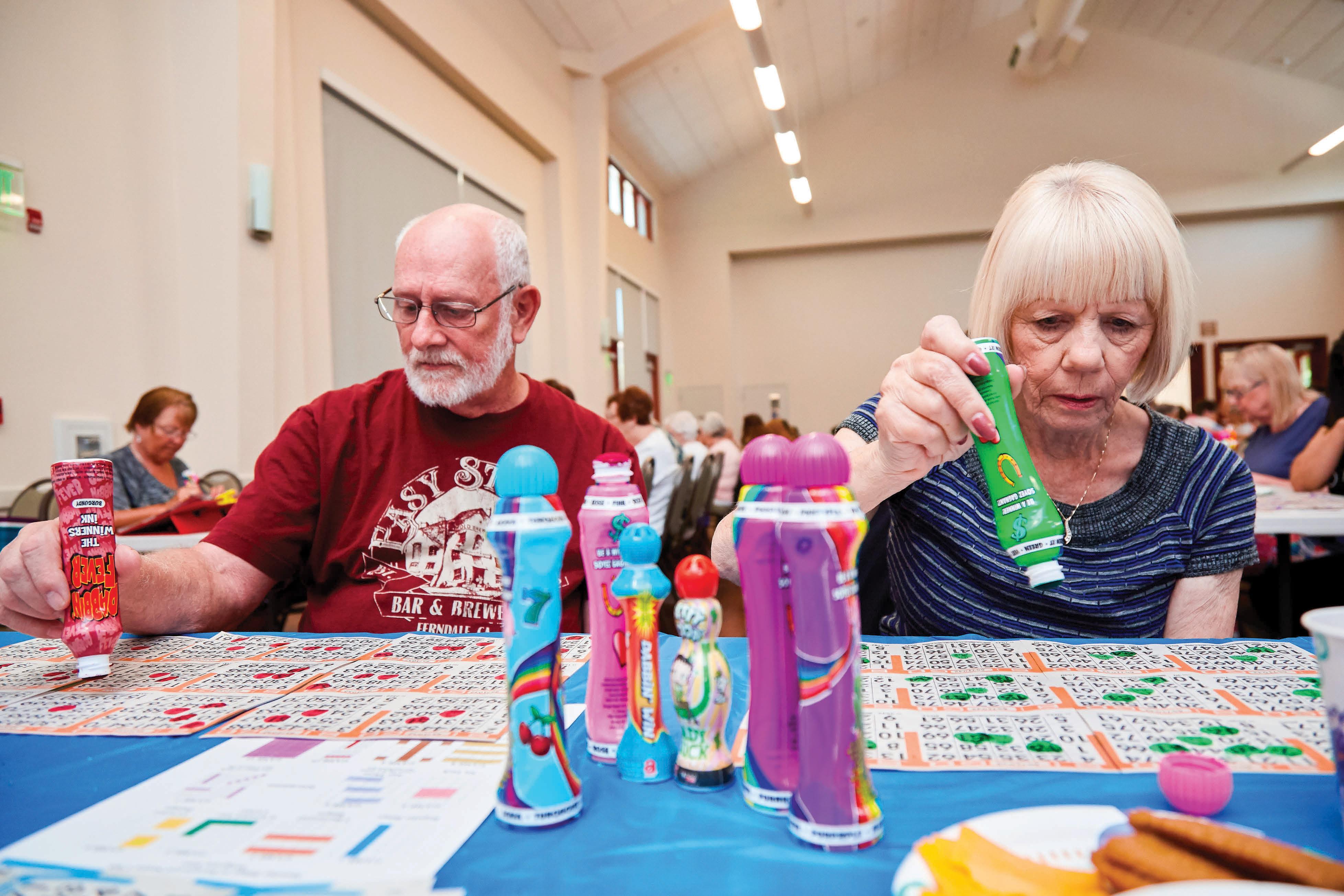
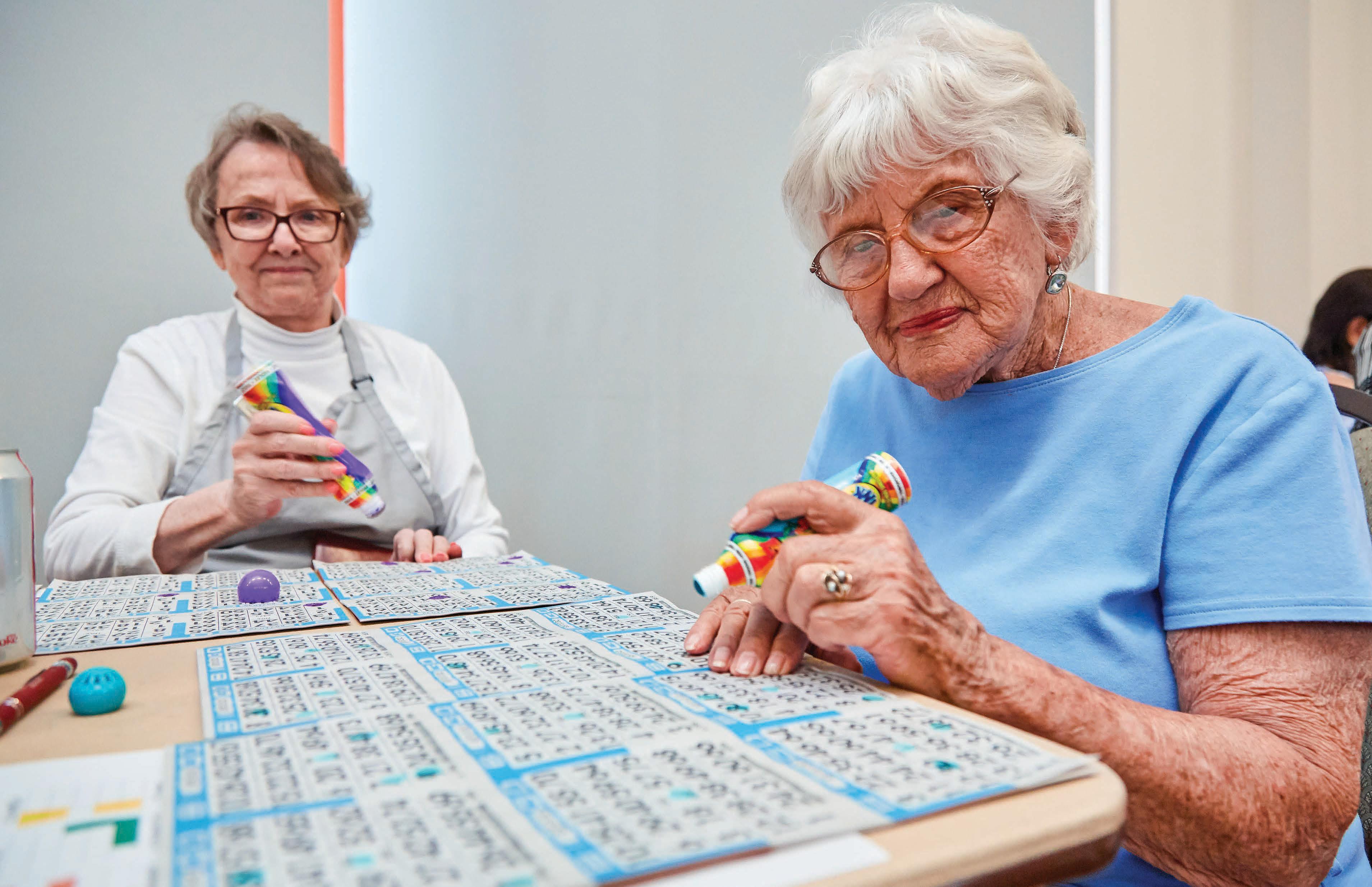







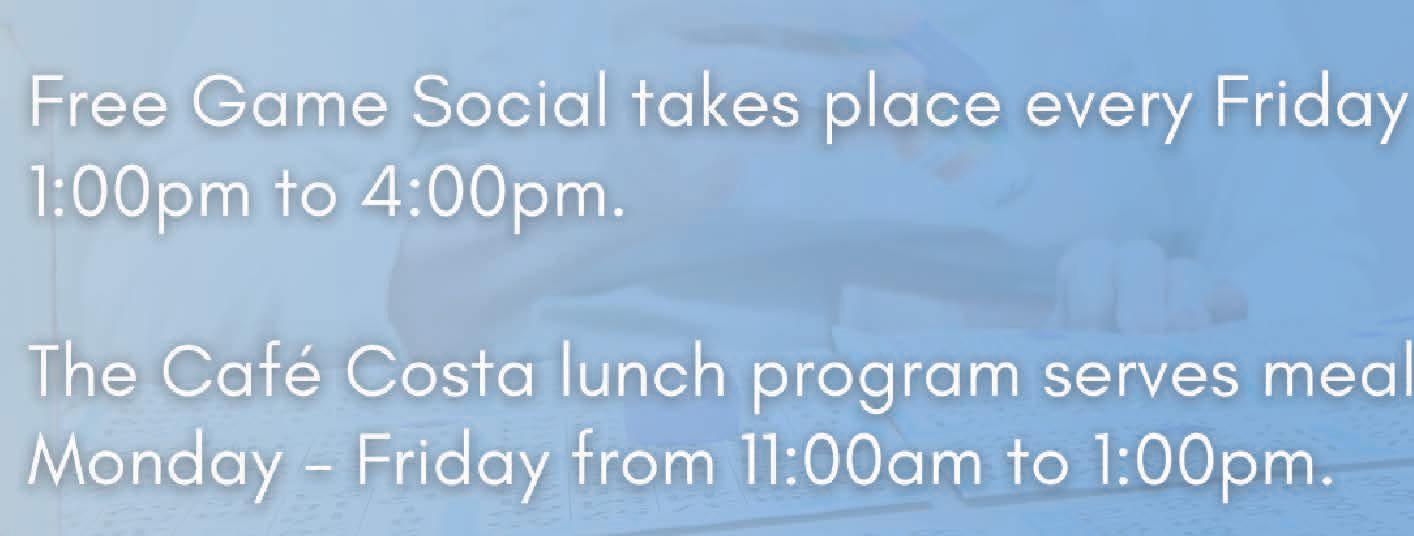
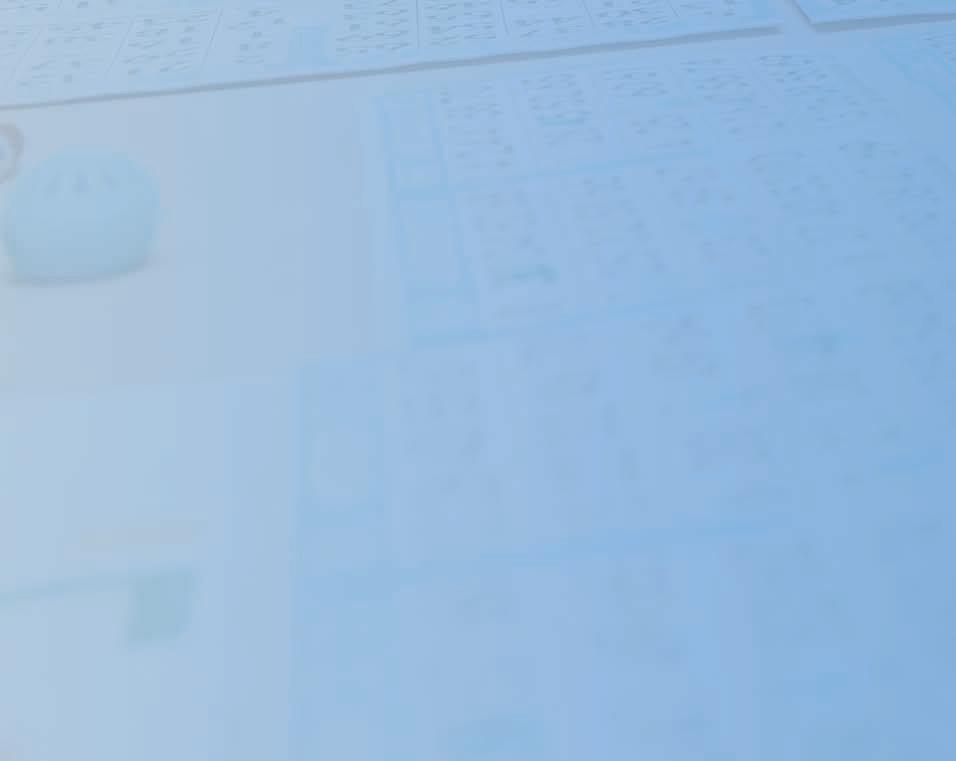








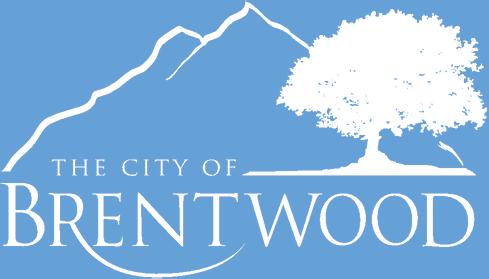
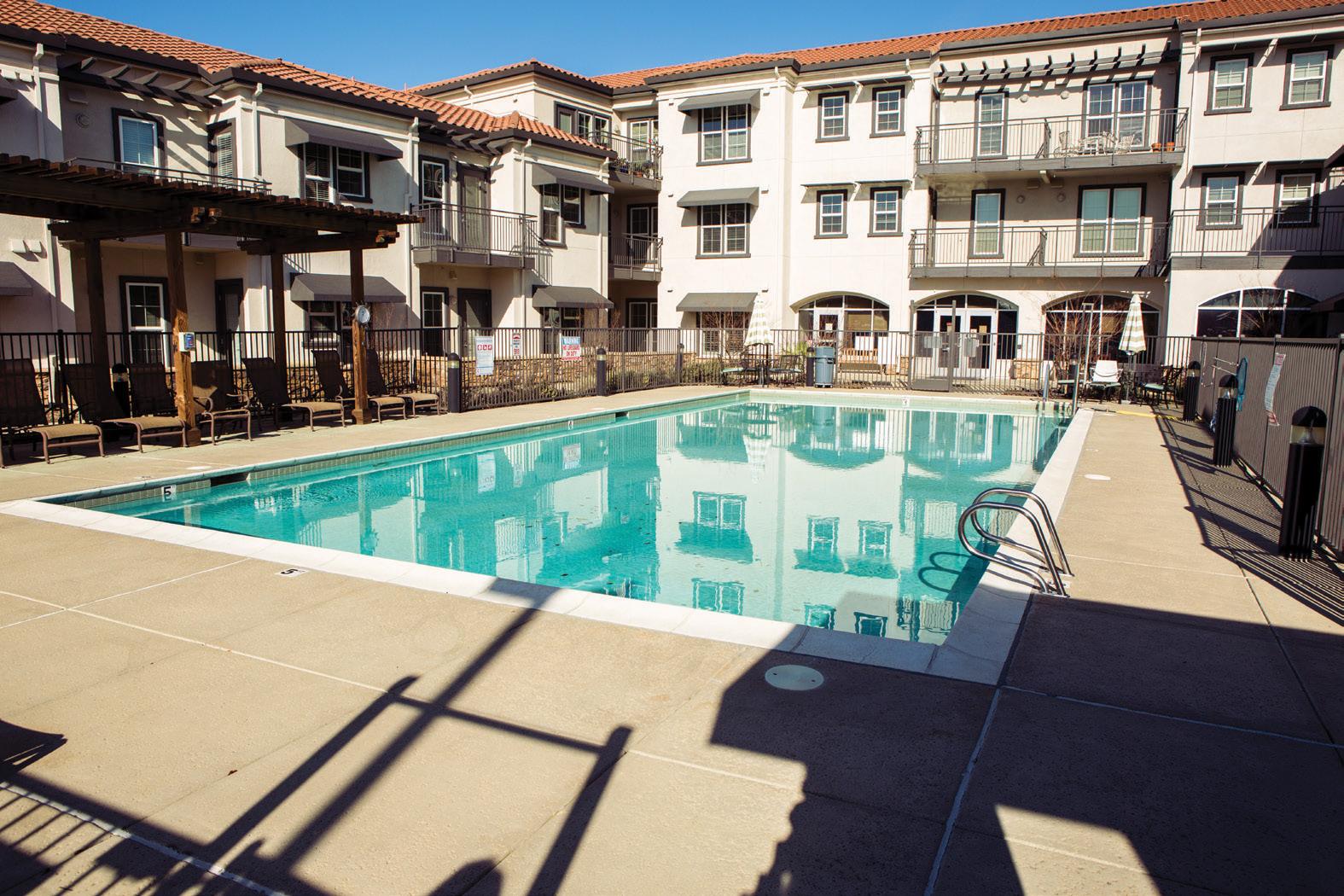
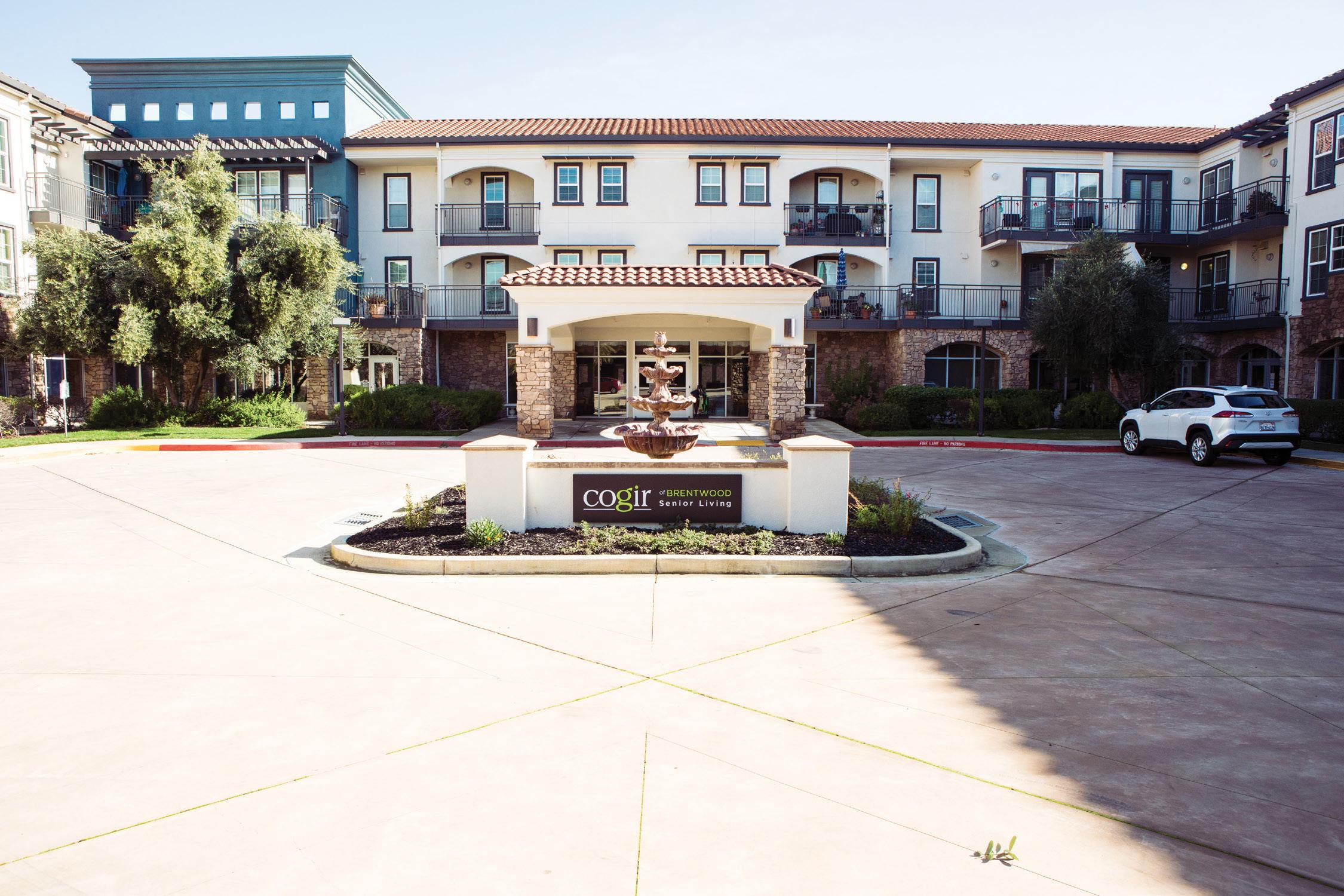
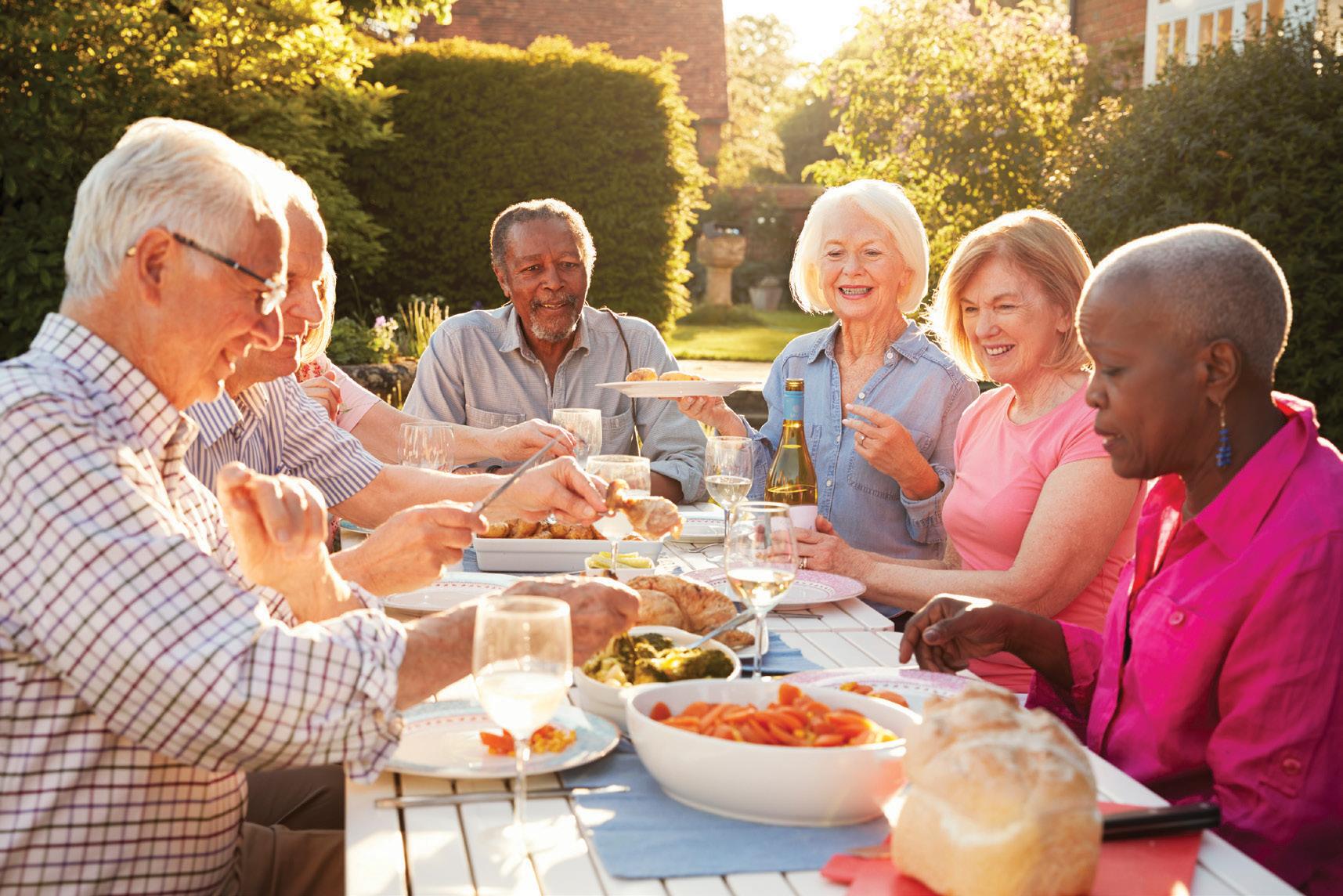
When Annette Rodrigues retired, she had always wanted to help people. So she joined a non-profit senior center to help seniors become acclimated to the internet.
Using her experience working at the National Aeronautics and Space Administration (NASA), Rodrigues continues to help seniors navigate technology and the internet for their own benefit.
Rodrigues started iPhone and iPad training classes for seniors at the center in San Jose in 2015 and did that for four years.
“It was very rewarding for me, from a volunteer’s standpoint, to help others. I
could see their frustrations turn into enlightenment afterward (after learning how to use their smartphones), Rodrigues added.
Rodrigues had worked at the National Aeronautics and Space Administration (NASA) for two decades before retiring in 1995. During her time at the NASA Ames Research Center, Rodrigues wore different hats, including training astronauts to conduct experiments, managing the transition of the U.S. Navy Moffett Field to a NASA-owned facility, and managing various technical research and development organizations.
While working on the space program at NASA- Ames in Mountain View, Rodrigues used a lot of Apple products.
“We were so close to Cupertino, and in the ‘80s when Apple was starting to test (their products) so we just worked with a lot of their products.”
“I used tools from Apple, and I had to learn a lot about Apple (for my work),” Rodrigues said.
In 2019, Rodrigues moved to Trilogy at the Vineyards in Brentwood and set up an Apple User Group to help other residents learn more about their smartphones.
The group now has about 180 people
who meet monthly for two hours at a time, and each session lasts six weeks. The current sessions are from 1-3 p.m. at the Brentwood Senior Activity Center, 193 Griffith Lane. The class, which costs $61, repeats every Monday until March 11.
“I offer tips and tricks for their iPhones, iPads, or Apple watch es,” she said. “We also have another meeting called ‘Ask The Tech’, which is an hour long and I give them updates on what’s happening, tips, and tricks (about their gadgets). We have about 10 volunteers who are coaches, some of them specialize in photos (or other tools and apps) so they can (help out during the) tech session.”

come these barriers. Rodrigues also helps to set up the health app on the phone to store their health information, which may come
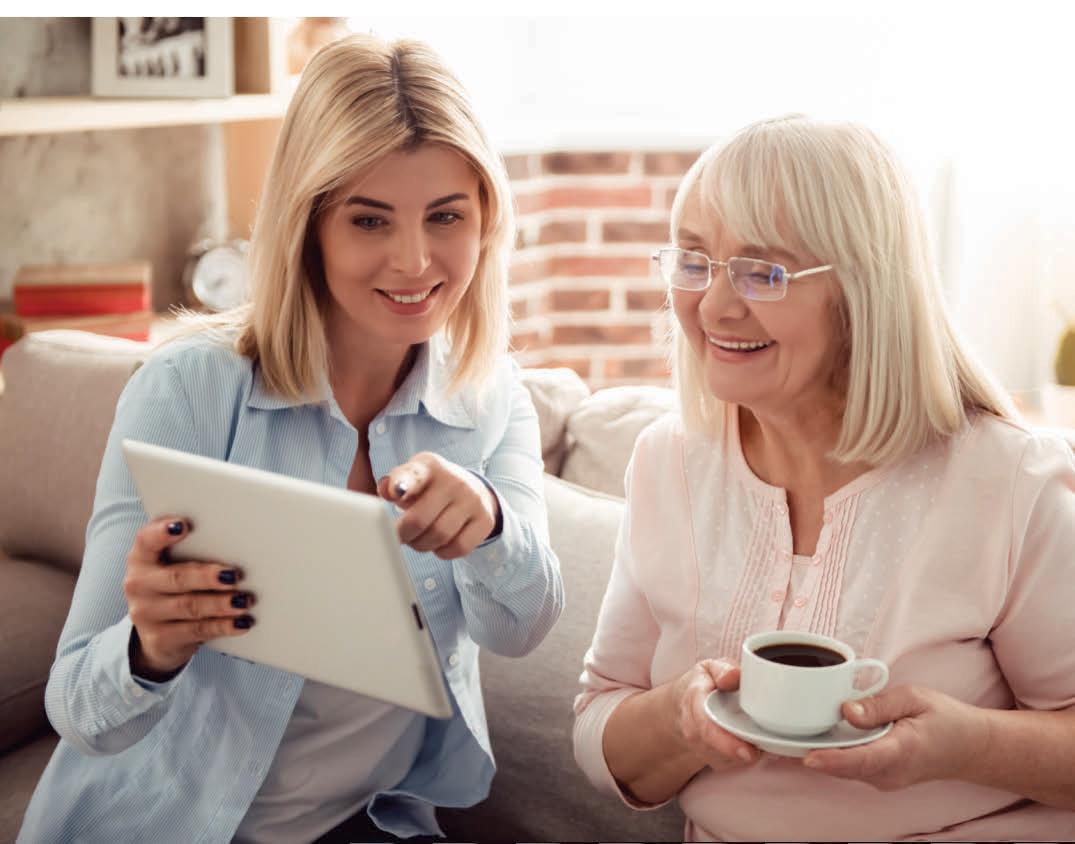
Apart from the sessions at Trilogy,
Our personalized services offer help and relief from daily routines, and are available 7 days a week up to 24 hours.
see iPhones page 19B
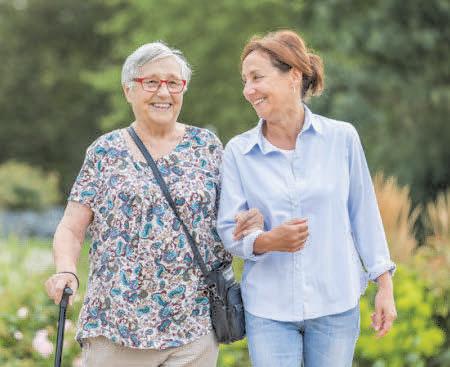
• Specializing in
• We accept Long‑Term

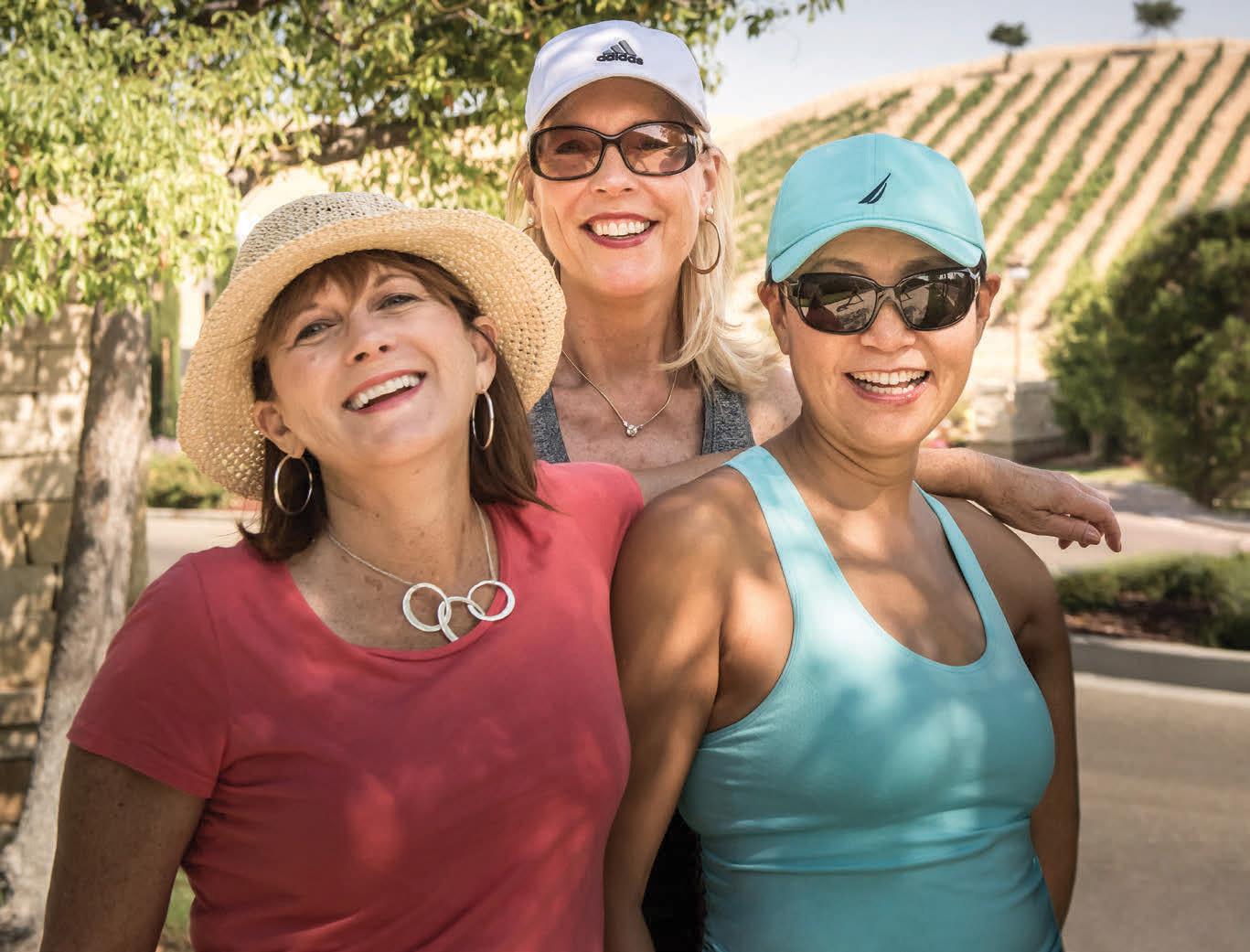
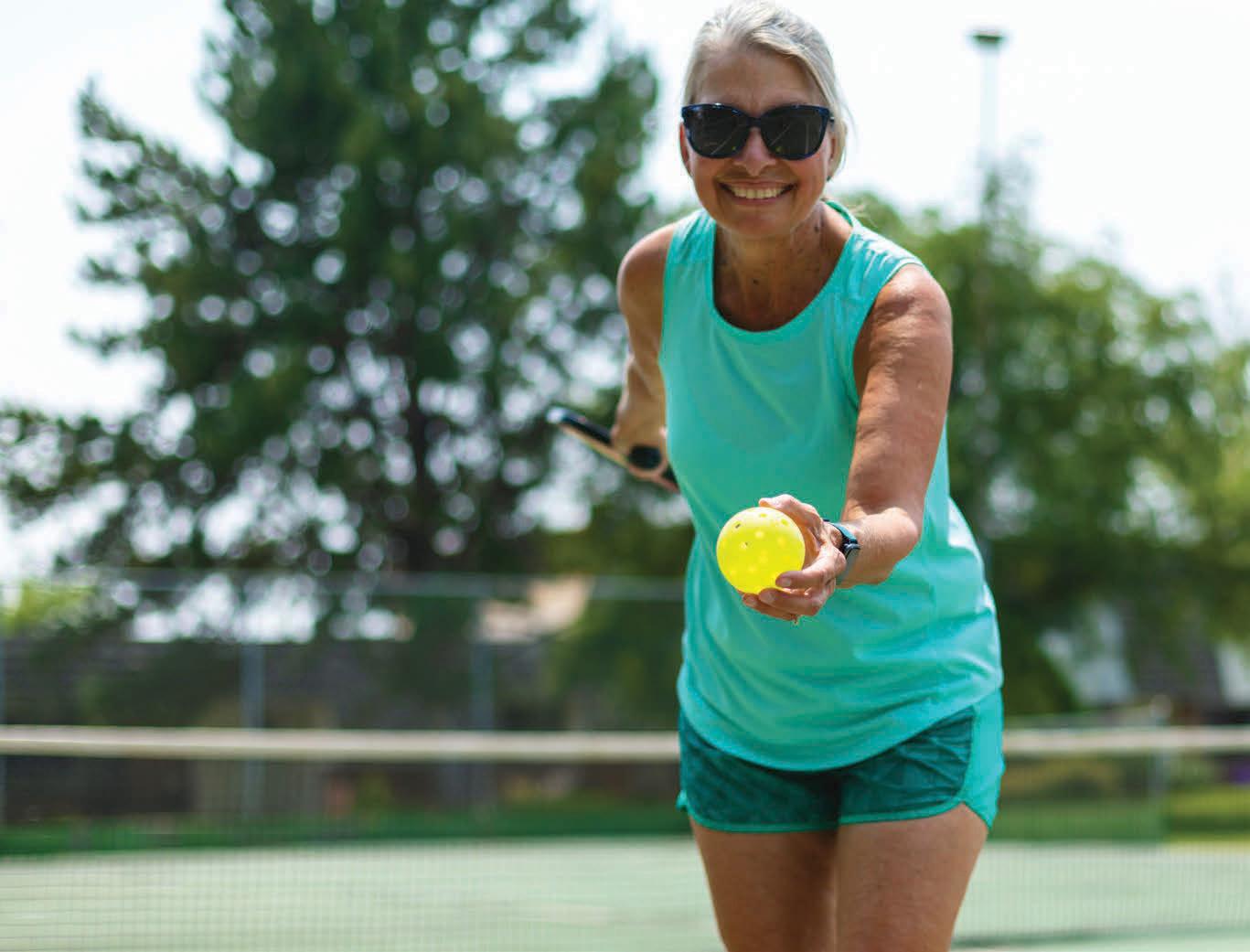
Have you ever wanted a nurse in the family? Well now you can. Meet Cheryl Ringo, a registered nurse with a new entrepreneurial, communitybased business called, A Nurse in the Family.
A Nurse in the Family was created to support clients and their families by providing navigation and advocacy around the healthcare system – with a focus on fall prevention.
Cheryl’s first experience first started as a teenage candy striper in a nursing home. She advanced into becoming a proficient critical care nurse and case manager with most of her experience spent working in the emergency department.
One of the most saddening things she saw on a daily basis was older patients who had fallen and brought into emergency by ambulance. Some arrived dressed in cute outfits with their make-up and jewelry, because they fell while shopping or at church; some fell during the night and arrived in their nightgowns; some lay on the floor for days until someone heard their calls for help. The worst were those who never made it.
Injuries from uncontrolled falls almost always result in cuts, broken bones, and worse, bleeding in the brain.
A memory nurse Cheryl will never forget was when an older couple came in – the husband had fallen and his brain was bleeding.
“We removed his hearing aid to prepare him for surgery,” Cheryl recalled. “But we had to put the hearing aid back in because he wanted to tell his wife of more than 50 years, ‘I love you.’
There wasn’t a dry eye in that room. It was devastating, in yet it was a preventable injury.”
Cheryl always wonders why “we child-proof our homes to keep kids safe, but we don’t adultproof homes to keep seniors safe.”
A Nurse in the Family is a concierge case management service that offers a customized plan with a level of support that exceeds expectations, because seniors matter.
♦ How we care for seniors
We provide a free, 30-minute consultation, answering your questions to determine if this service is right for you. If so, we develop a customized plan to meet your specific needs. Our fall-package offers a home evaluation to determine client’s needs and complete a home safety assessment. Client receives a summary of safe changes and recommendations. The package comes with a medication reconciliation and a fall detection pendant, if needed.
♦ Safe referrals for seniors
With A Nurse in the Family, we refer a passionate team of vetted experts in the field.
♦ When to call A Nurse in the Family
Have you fallen before or are afraid of falling? Do you have to counter surf or hold onto furniture or countertops as you walk? Do you feel confused or overwhelmed by the healthcare system? If you are age 60 or older, do you wish you had someone to consult with in real-time to navigate your medical journey. If you’ve answered yes to any of these questions ... give A Nurse in the Family a call today and hire your own personal nurse with concierge services.
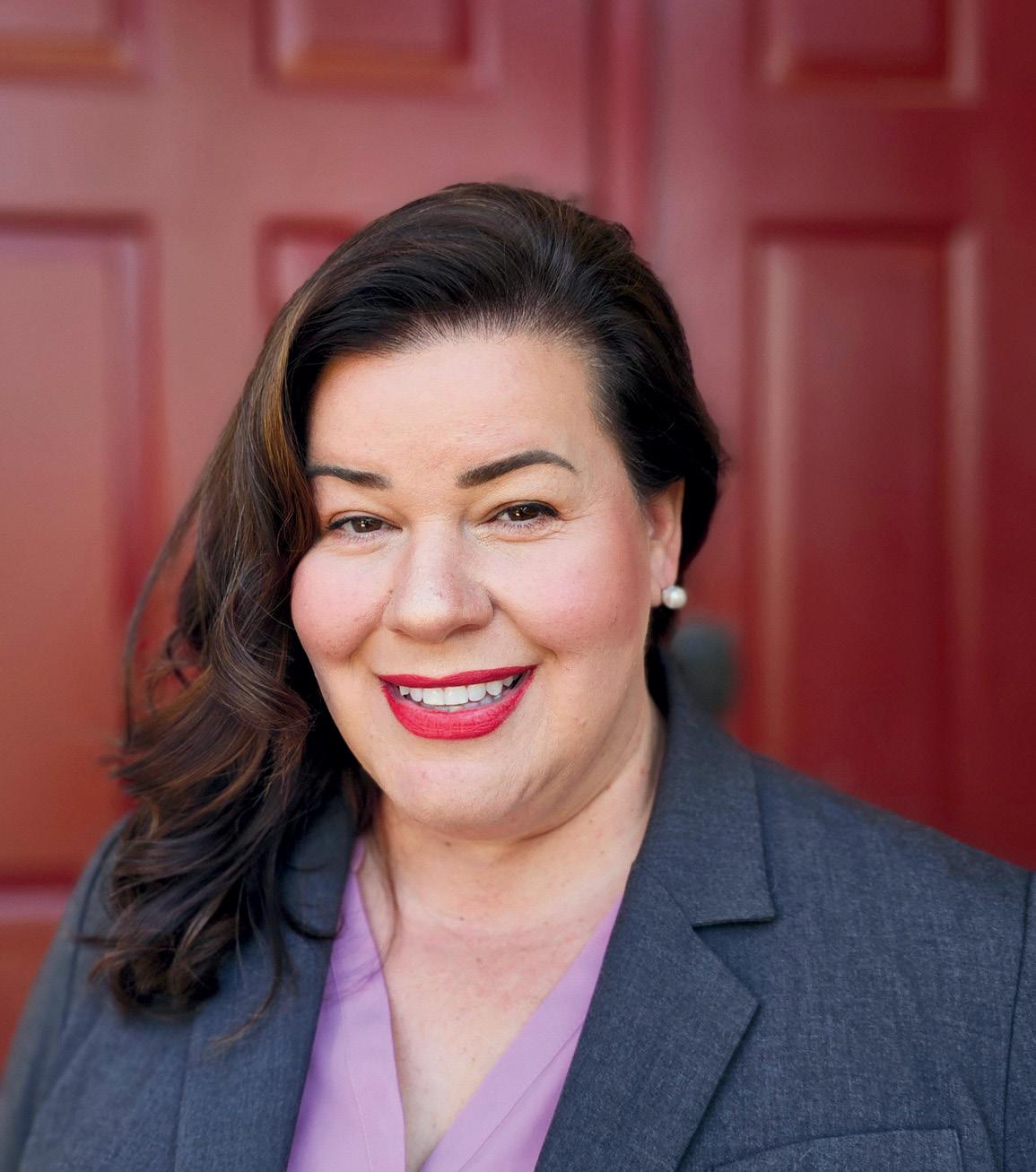
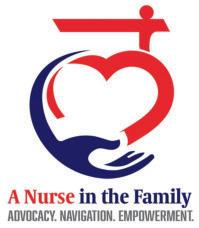
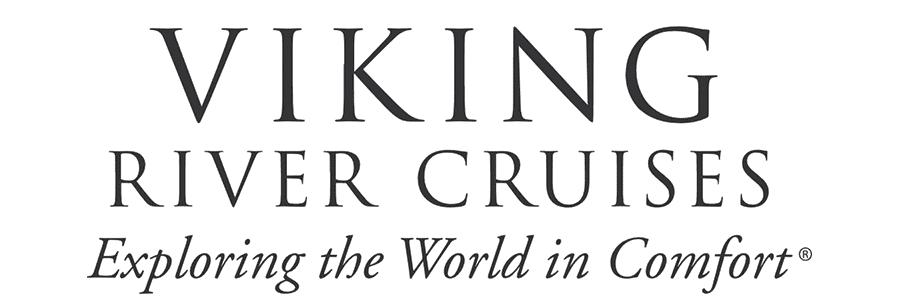


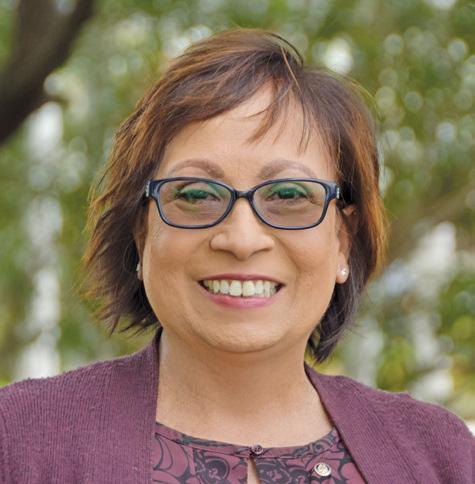
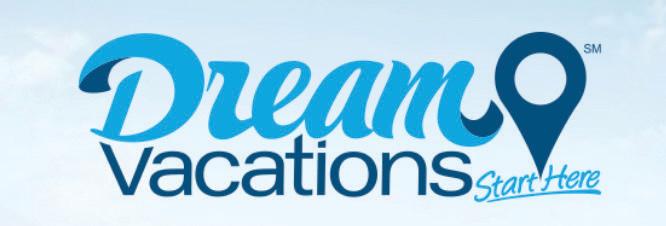

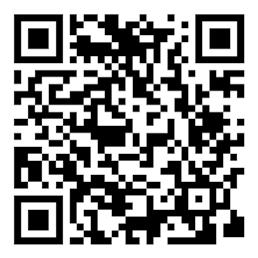
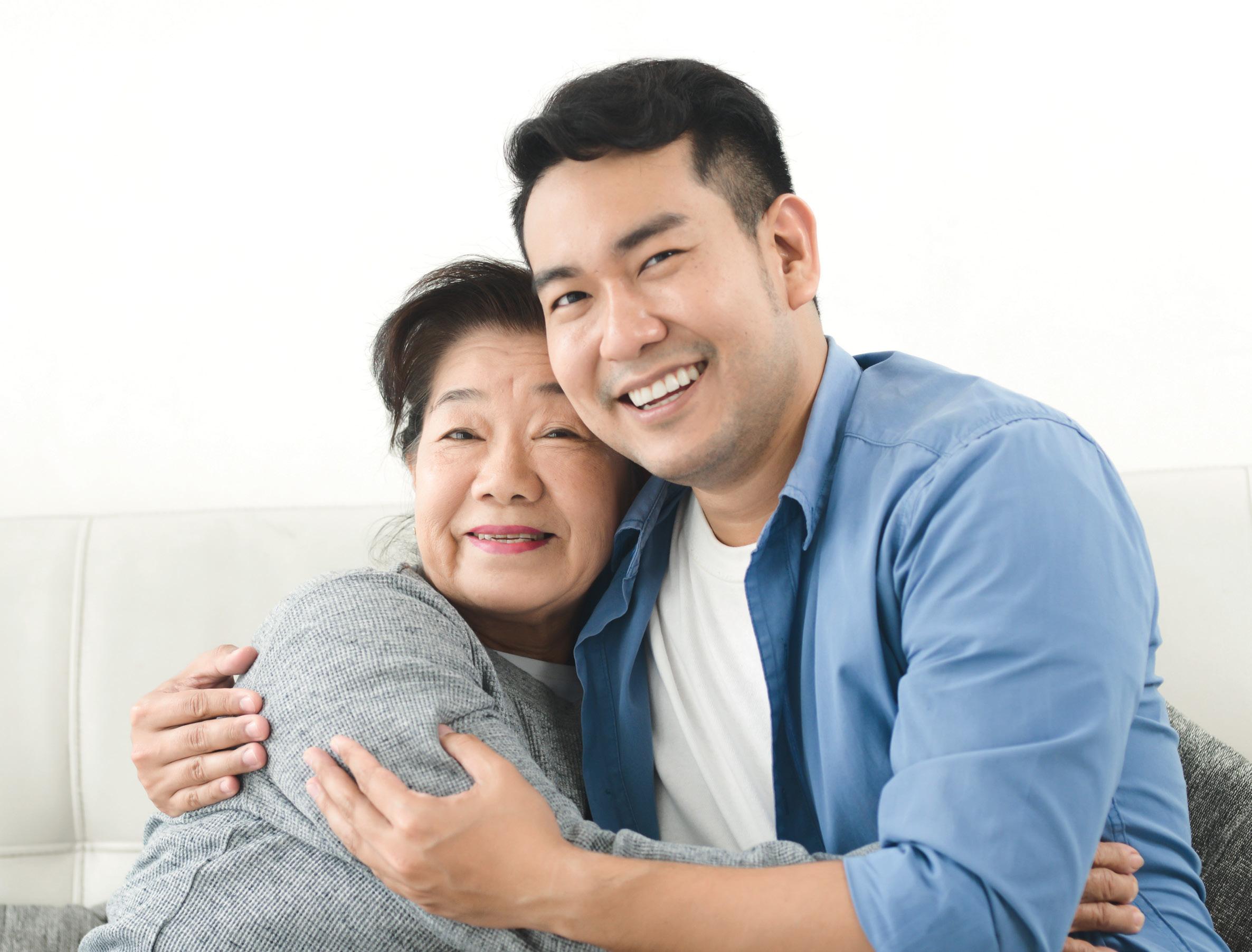
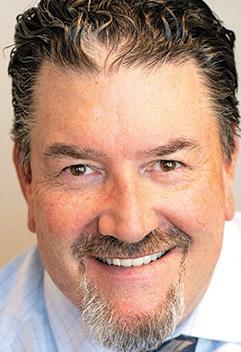

I have discussed the importance of estate planning many times in these articles. Saving money, peace of mind and making things easier for those you leave behind are just a few of the benefits. However, with estate planning typically comes difficult conversations with family members that does not come natural. Subjects such as who you want to be in charge of your estate after death, who should receive your assets and end of life issues are just the beginning. Nine out of 10 Americans consider it important to have a financial plan but almost half have difficulty discussing finances with loved ones. There are three reasons for this: It can be overwhelming, it can be awkward and talking about a future plan is difficult when you don’t have one in place. The statistics tell an interesting story. 38% of people do not even talk to their spouse or partner about the other’s financial situation before getting married. 55% of those without a financial plan say they are not confident in their retirement and a full 86% of us do not feel they have saved enough for retirement. It starts with a conversation and
sometimes we just need a little help to take that first step. When I talk to clients about estate planning, I do so without making them feel guilty or being ashamed. The most important step you take is talking with someone. I reassure my clients that it is never too late nor too early to start talking about finances after death. Most of my clients have a very real sense of accomplishment and relief because many have been putting it off for years. I cannot emphasize enough the peace of mind my clients walk away with when we complete their estate plan and they know this important issue has been handled. Make a commitment to yourself and talk to your family today about these issues. Keep it light and do not take it too seriously. Your next call should be to my office and we will put your plans into action.
If you have questions on this or any other estate planning topic, call me at (925) 516-4888. East County Family Law Group, 1181 Central Blvd. Ste. A, Brentwood www.eastcountyfamilylaw.com – Advertisement

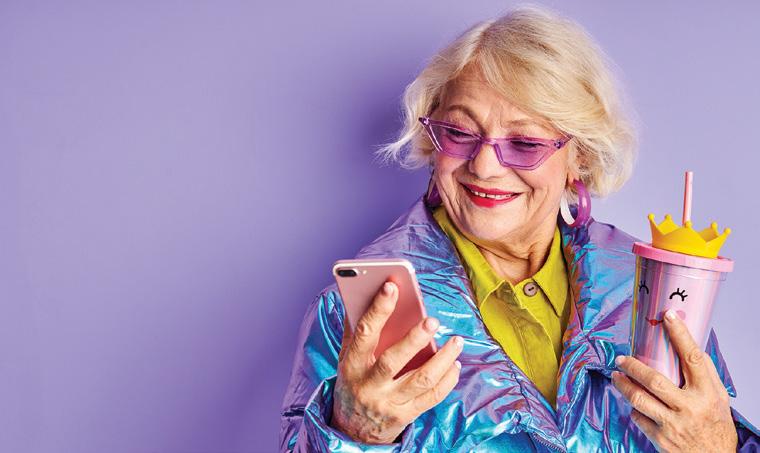

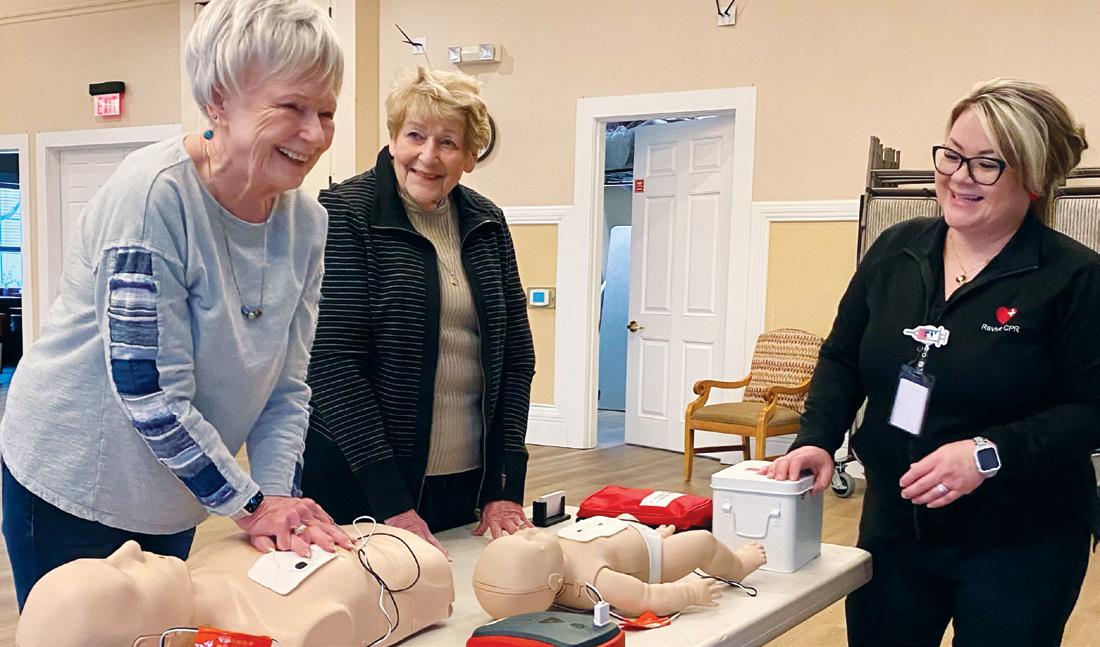
Brentwood woman teaches CPR, AED classes, too
When Susan Lowrey moved to Summerset Orchards, a gated adult senior community, three years ago, she noticed the absence of a proper plan in place in case any residents needed cardiopulmonary resuscitation (CPR).
Lowrey, a registered nurse of over 40 years who is now retired, said she felt the necessity to have one as it was a community of seniors, who are in the high-risk category needing CPR.
“I was surprised to be living in such an active community with so many fun activities and events going on, but we didn’t have any automated external defibrillator (AED) equipment or a CPR plan in place.”
“That’s when I started asking questions and did research,” Lowrey said.
Lowrey took the opportunity to bring up the matter with the community’s homeowners association board of directors, who then decided to organize CPR classes for seniors

last summer.
All staff and more than 50 residents at Summerset Orchards attended the classes and are now certified by the American Heart Association to conduct CPR. The community now has two AEDs placed in the lodge.
Lowrey said CPR-certified residents also volunteer to join the AED Task Force to regularly check the equipment, review, and verify that the equipment is ready for use.
“We want as many CPR-certified residents as possible on this task force to remember and be familiar with how to use an AED correctly during CPR,” she added.
Lowrey said CPR classes now include teaching the public on how to use AEDs during CPR.
“Some people fear that the AED is dangerous and could electrocute or seriously hurt someone. If that were true, AEDs for public use would have been taken off the market years ago,” Lowrey said.
The AED is a lightweight, portable device that delivers an electric shock through the chest to the heart when it detects an abnormal rhythm and changes the rhythm back to normal.
According to the American Heart Association, a person’s chance of surviving drops by 7% to 10% every minute a normal heartbeat isn’t restored. Immediate CPR and AED use can double or triple the person’s chance of survival.
The association also noted that 73.4% of out-of-hospital cardiac arrests often occur at homes or residences, followed by public settings (16.3%), and nursing homes (10.3%).
Lowrey, who has taken CPR classes since she was a teenager, said her biggest challenge initially was to convince fellow residents to take the classes. She said many felt their age and ailments were a hindrance.
“They told me they have bad knees, have arthritis, bad back … I thought to myself, ‘How are we going to do this?’
“Then I thought, why not call it CPR for seniors but make it teamwork?
“One person can’t be doing CPR on their own (if they are unable to get down on their knees), but there are other things that can be done, like calling 911, directing the paramedics, getting AED, or comforting family members,” she said.
Lowrey said more CPR classes will be
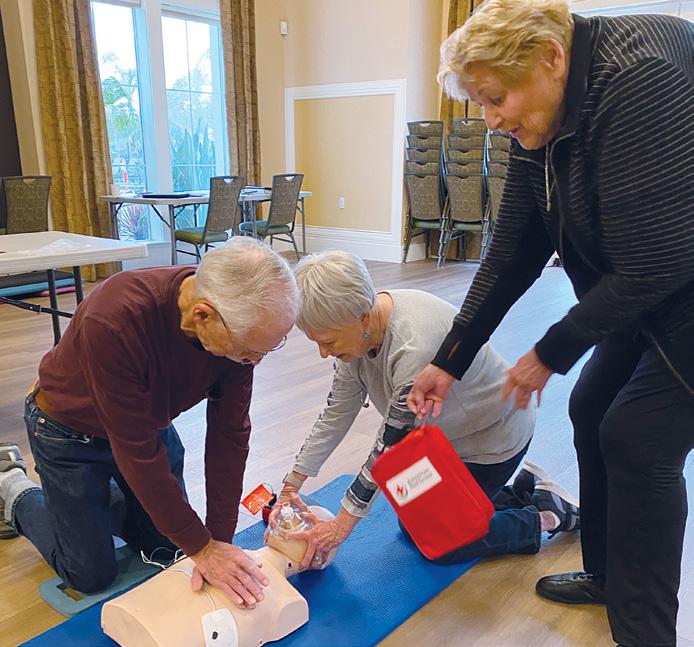
offered for the residents at Summerset Orchards.
Nina Silva, a registered nurse, CPR instructor, and owner of Revive Health and Wellness in Brentwood, has taught several “CPR for Seniors” classes, including at Summerset Orchards and Trilogy At The Vineyards.
Silva said she understands the challenges with seniors wanting to perform CPR, so she provides them with options during her classes.
“I have all the videos and I bring all my equipment,” she said. “I give them options, like placing knee pads on the floors, or setting up the mannequins on the table so they can practice if they are not able to get down on their knees.”
“But I also tell them that when they face real-life situations, they might be more than willing (to get down on their knees and perform CPR) because of the adrenaline rush (especially involving their loved ones),” Silva said.
Each CPR certification class is three hours, and the certificate is valid for two years.
Silva said she has always wanted to become a nurse and educate people on the values of learning CPR.
“We can never know how long an ambulance will take to arrive (in case of an emergency).
“(With CPR knowledge) we can be the help before the (actual) help arrives,” Silva said.
For more information, visit https://reviveheal.life/



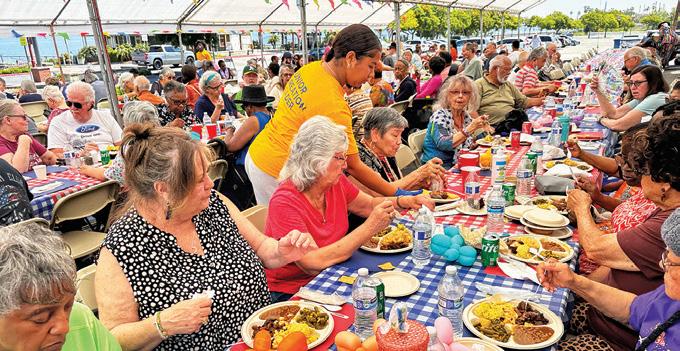
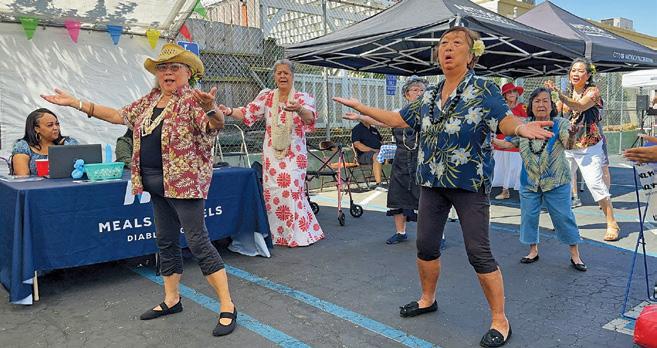
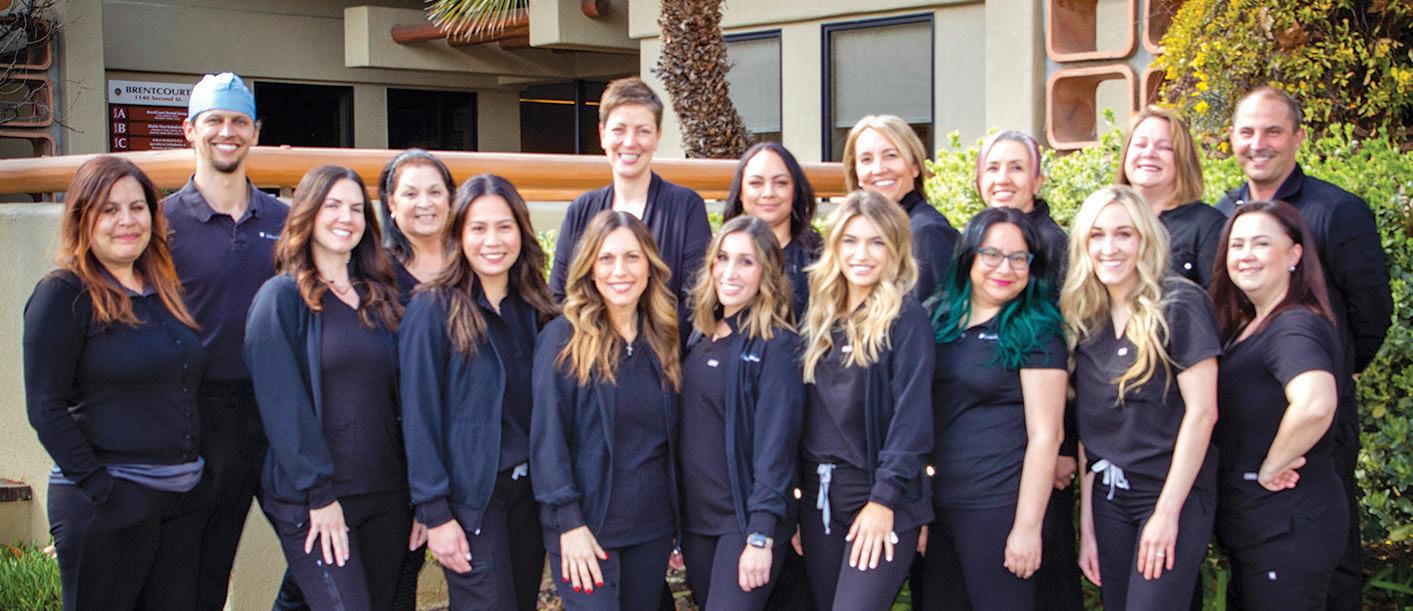




Jules Patrice Means doesn’t want to waste a minute of the time she’s been given on earth.
The 70-year-old Brentwood resident spent most of her life working as a wife, mother and grandmother, and recently added “college graduate” to her resume.
Like many women of her generation, Means graduated from high school but was not pushed to pursue higher education. She admits the thought of going to college did not occur to her until after she suffered a stroke in 2004.
“I kept thinking if God blessed me to make me well again, then I would go back to school,” she said of her time in the hospital.
It took some time and rehabilitation, but in 2017, Means began taking classes at the Los Medanos College Brentwood campus. Initially thinking she would take a physical education class to help build up the muscles damaged by her stroke, Means began browsing the school’s course catalogue.
“I wondered if I could do well in some other things, like business and biology,” she said. “So I took five classes and I received all As.”
After that first semester, Means was hooked. She went on to earn two associate degrees before transferring to UC Berkeley, where she continued working hard and not just passing, but excelling in, her classes.
On her first day at Berkeley, the busy campus full of “children” seemed overwhelming, but some encouragement from a fellow student saw her through.
“I said I was looking for Haviland Hall, and he asked me if I was OK and I said ‘no,’” Means recalled. “He told me I didn’t get there by mistake and that Berkeley only accepts the best of the best. He said, ‘You got in here, so go to your classes and all your lectures and you’ll be fine.’ So that’s what I did.”
Using four loans and several scholarships, Means earned three bachelor’s degrees from UC Berkeley – BA in sociology, BA in psychology, BA in social welfare, and all between 2019 and 2023 – and is currently working on a master’s degree in social welfare. Her dissertation is almost complete, and she eagerly anticipates her graduation this May.
Means credits her support system for helping her get through the three-hour commute on public transportation and all the difficult classes she has mastered. In addition to her husband, Keith, her four sons, her sister and her niece, she expressed appreciation for the dean of Berkeley’s school of social welfare, Linda Burton.
Burton said when Means applied, the school was excited to welcome her because of her excellent grades.
“We look for exceptional students who not only perform well with respect to their coursework, but who are also mature, and their application suggests that maturity,” Burton said. “And she is a force of nature in the most positive ways. She’s a gentle spirit, and a gentle spirit with wisdom.”
Burton said Means is committed to success not only for herself, but for others in the program. She is known as a role model and an encouraging voice to anyone she meets.
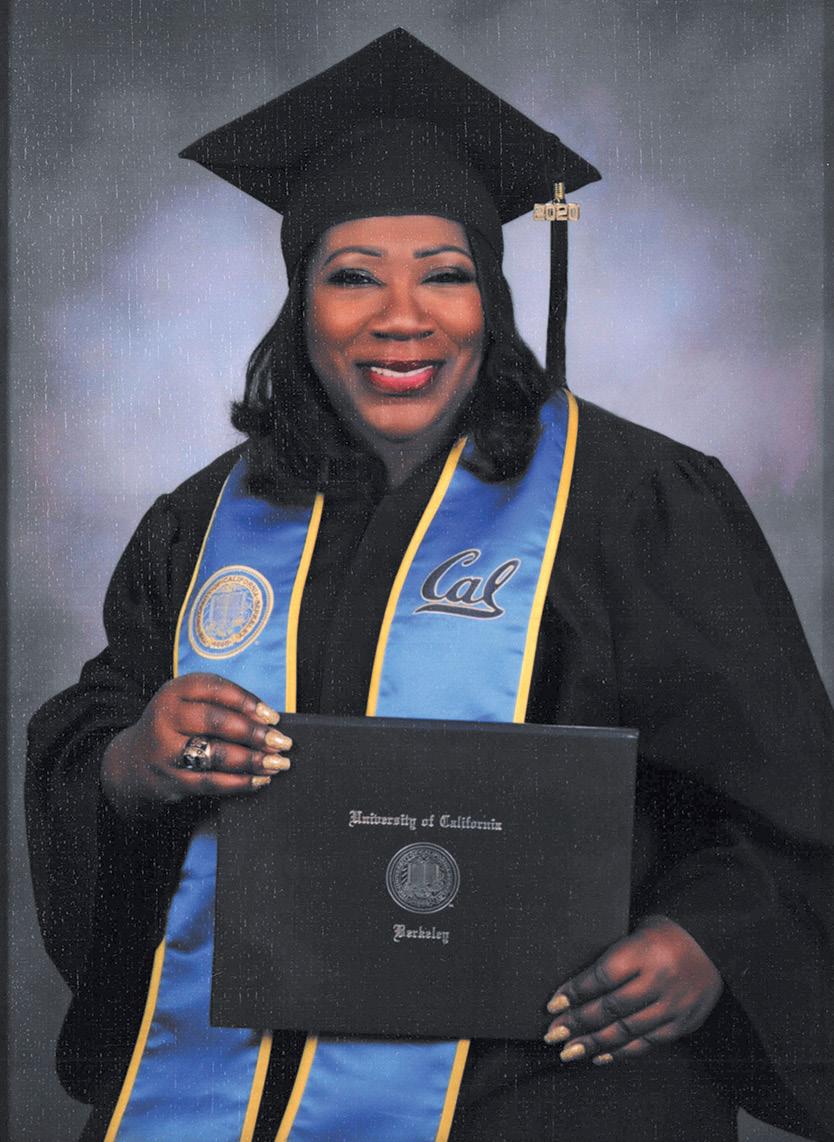
“She’s just really a gift to our program,” Burton said. Means said she has “tremendously enjoyed” her time as a student. She said moving forward, she hopes to continue her mission of education by encouraging youth to work hard in school. She sees children and teens as the future and wants to uplift them.

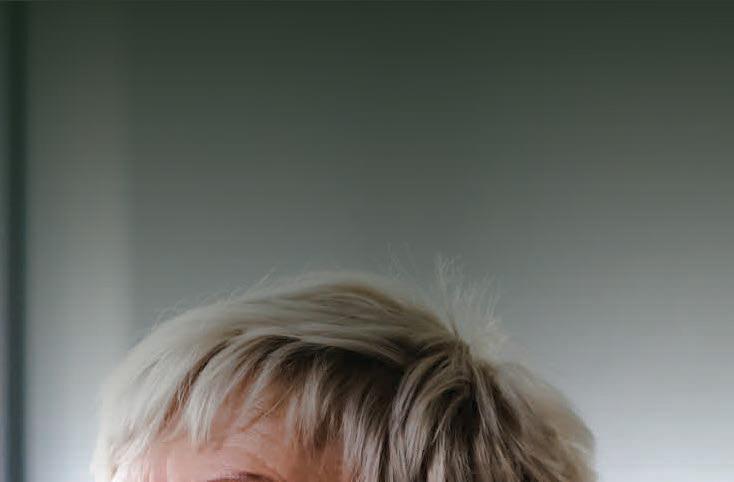
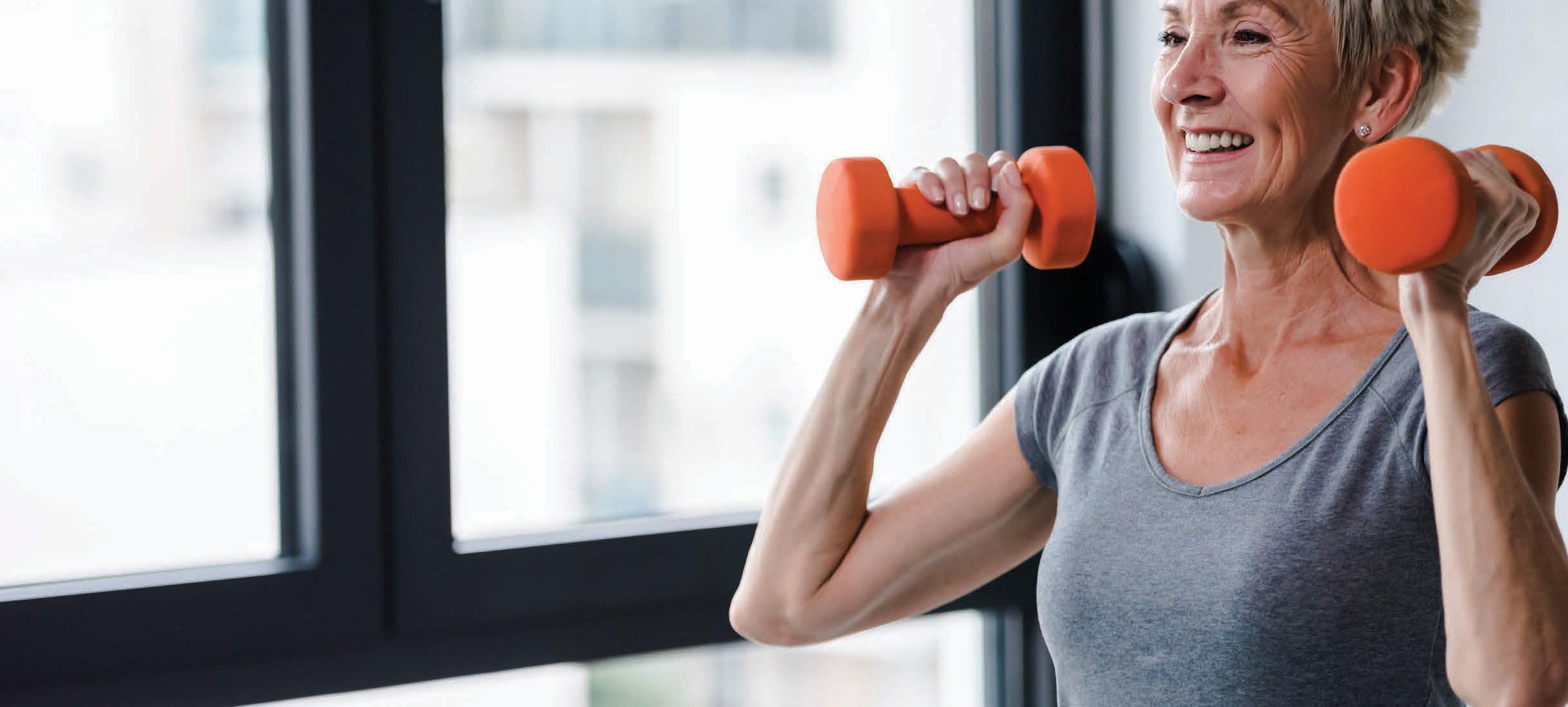



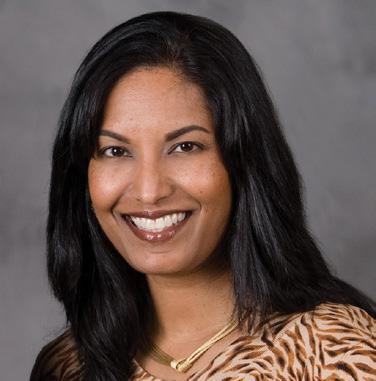
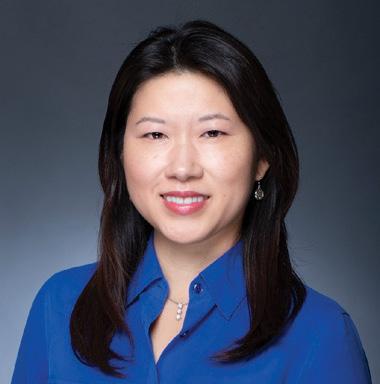
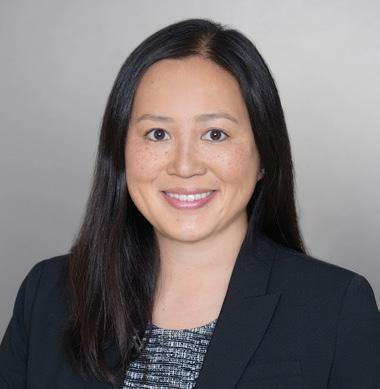
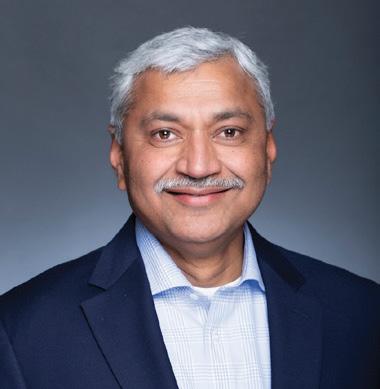

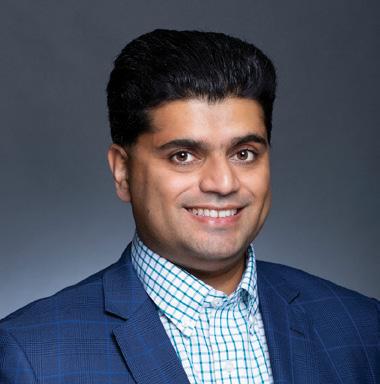
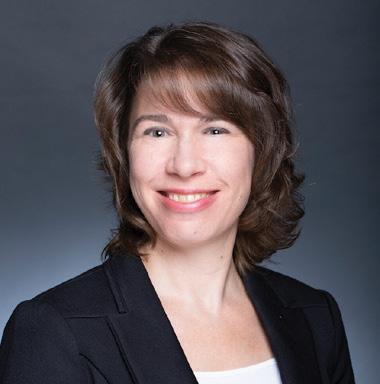
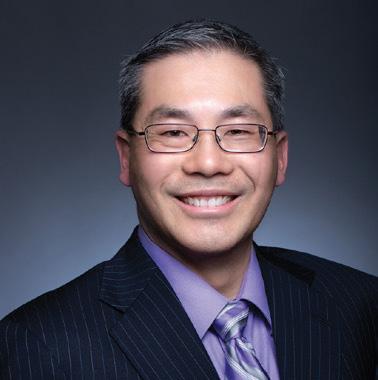
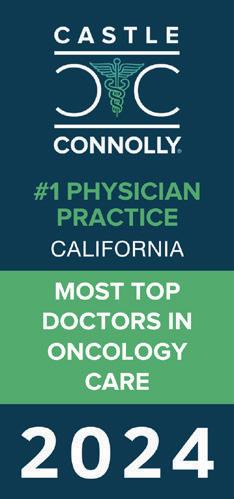
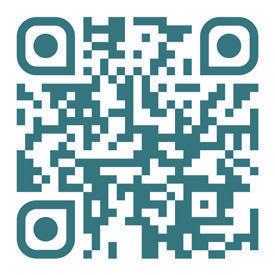
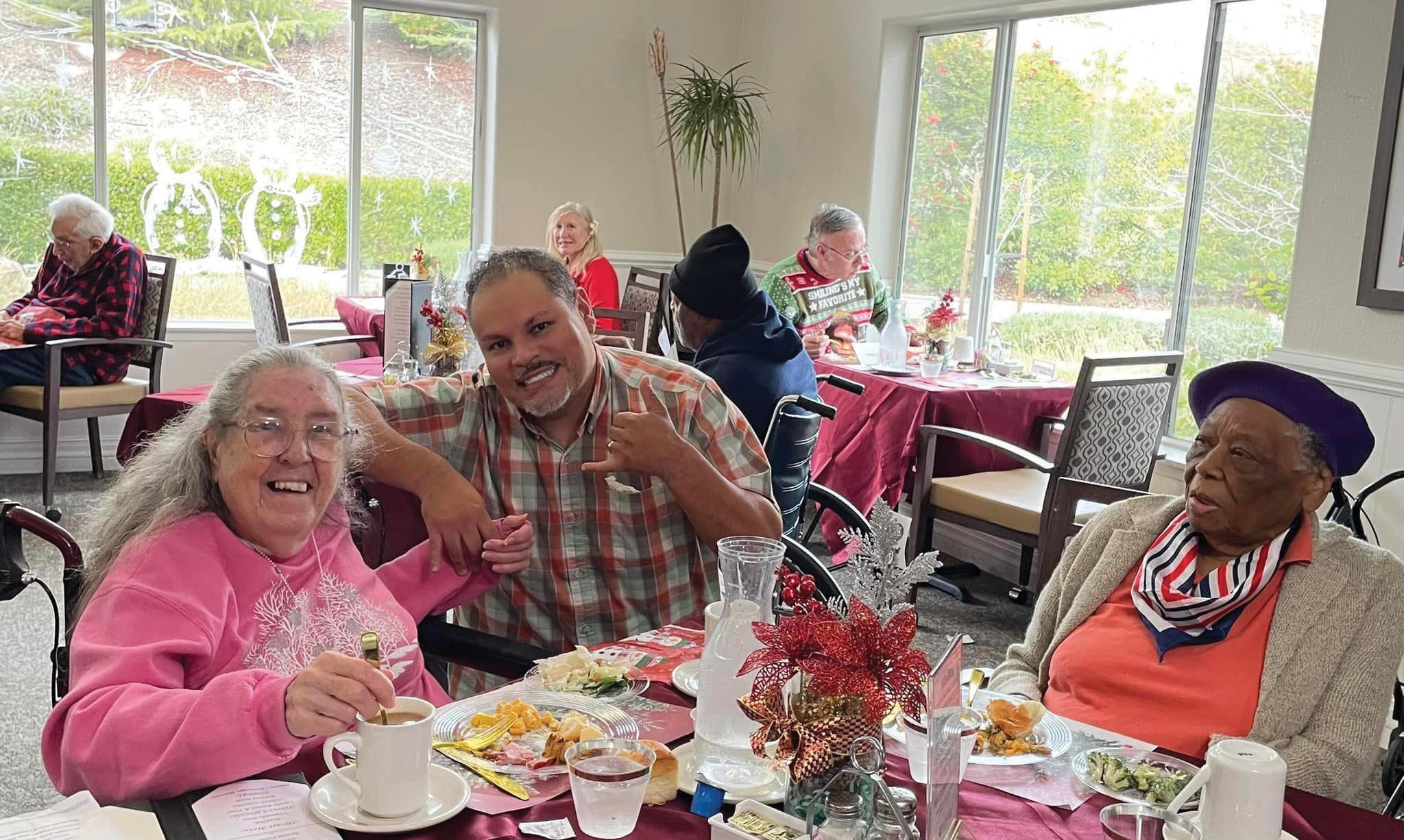
“I knew I needed
and that I was no longer safe
in my
years. I visited TreVista and was so impressed! The building is nice, well-kept and clean. I know I’m safe herethe staff is responsive and checks on me often, they manage my medications and my pain has decreased. They kept the promise they made on my tour - that they would take care of me.”
of
Keep it at your bedside, not under the bed. Charge your phone overnight while you sleep. Turn the screen upside down if the screen lights up with messages. Also, keep a charging cord in your car’s glove compartment.
As people get older, their voices become weaker. Instead of calling out, blow your whistle using the universal call for help (SOS) – 3 long blows, 3 short blows, then 3 long
If you are in bed when the shaking starts,
Most people sleep barefoot. During a quake, you probably can’t see if it’s dark inside. So before walking anywhere, put the boots on to protect your feet from glass, fallen objects and other things you can’t see in the dark.
Make sure it’s good quality with a long handle, not a penlight or cheap plastic light. People need to see clearly to be able to navigate around. And the long handle is good for knocking on doors or walls, or pushing something out of the way.
♦ roll over face down with a pillow over your head to protect it while maintaining enough room to breathe.
♦ gather your pillows, blankets and/or comforter around you. When the shaking stops, put them on the floor. Then carefully lower yourself onto the pillows on the floor because if the power goes out, you might not be able to see what’s on the floor (debris, broken glass, etc.)
Then reach under the bed for the four items listed above.
–Susan Lowrey, Safety and Security Committee at Summerset Orchards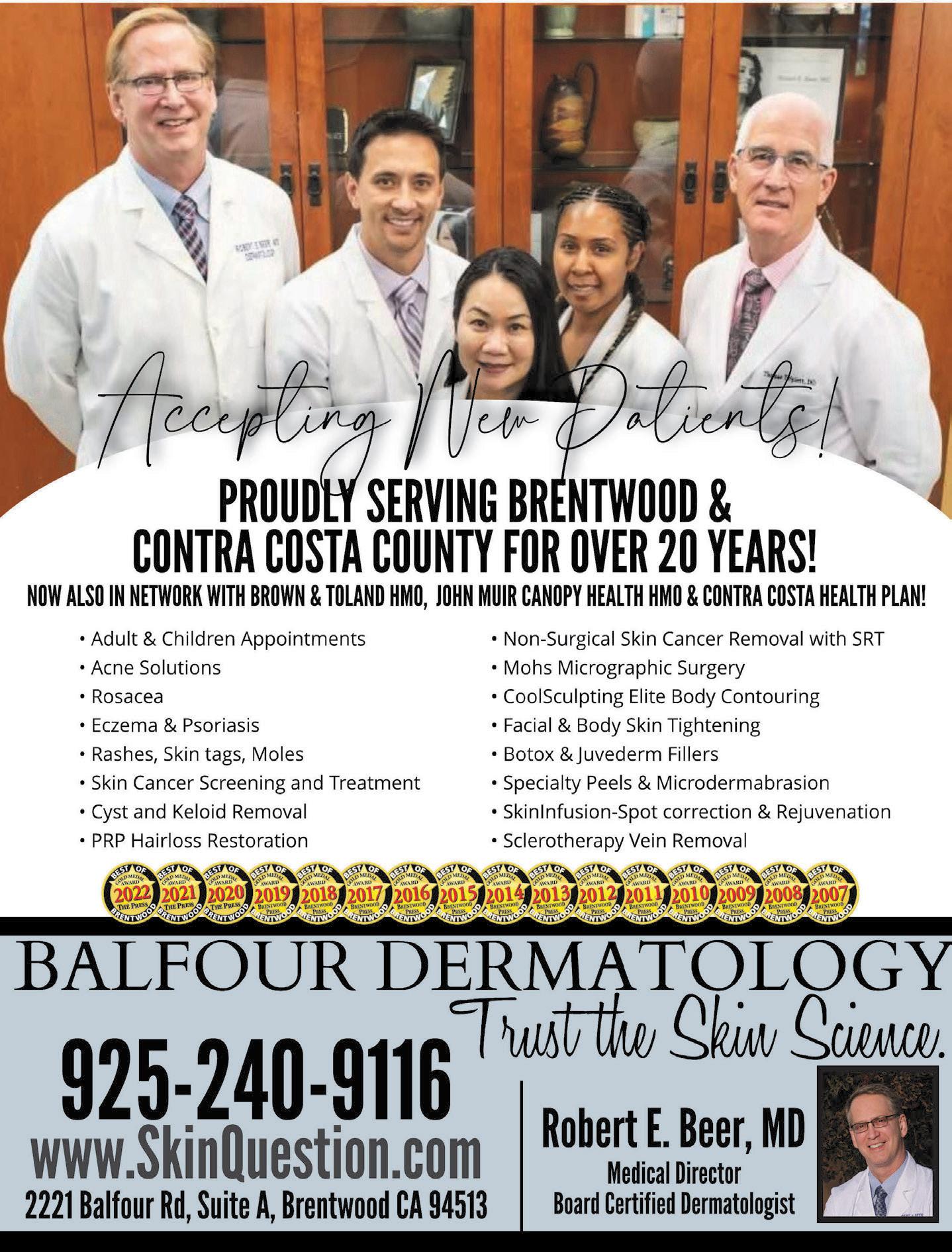

Exercise has its fair share of devotees and millions of others who recognize its value but still struggle to include workouts in their daily routines. Motivation can be a significant hurdle when it comes to exercise, and recent studies are a testament to that difficulty.
In a 2021 survey from the global fitness brand Orangetheory Fitness and Kelton Global, 43 percent of respondents indicated they suffered from a lack of motivation to exercise. Lack of motivation can affect people of all ages, including seniors. However, seniors may be uniquely positioned to overcome their lack of motivation to exercise, particularly if they’re retired and have time on their hands. Seniors who aspire to exercise more frequently can consider these strategies if motivation becomes an issue.
♦ Exercise away from home. During the early days of the COVID-19 pandemic, a phenomenon that has been characterized as “basement burnout” developed. That referred to the lack of enthusiasm to exercise at

home when gyms and other fitness facilities were forced to close as a public safety measure. Home workouts can become monotonous since most people do not have enough room at home to house the same array of equipment that’s available at their local gym. Seniors can overcome monotonous workouts by purchasing a gym membership at a local facility. Many clubs offer discounted rates to seniors and some even offer senior-specific
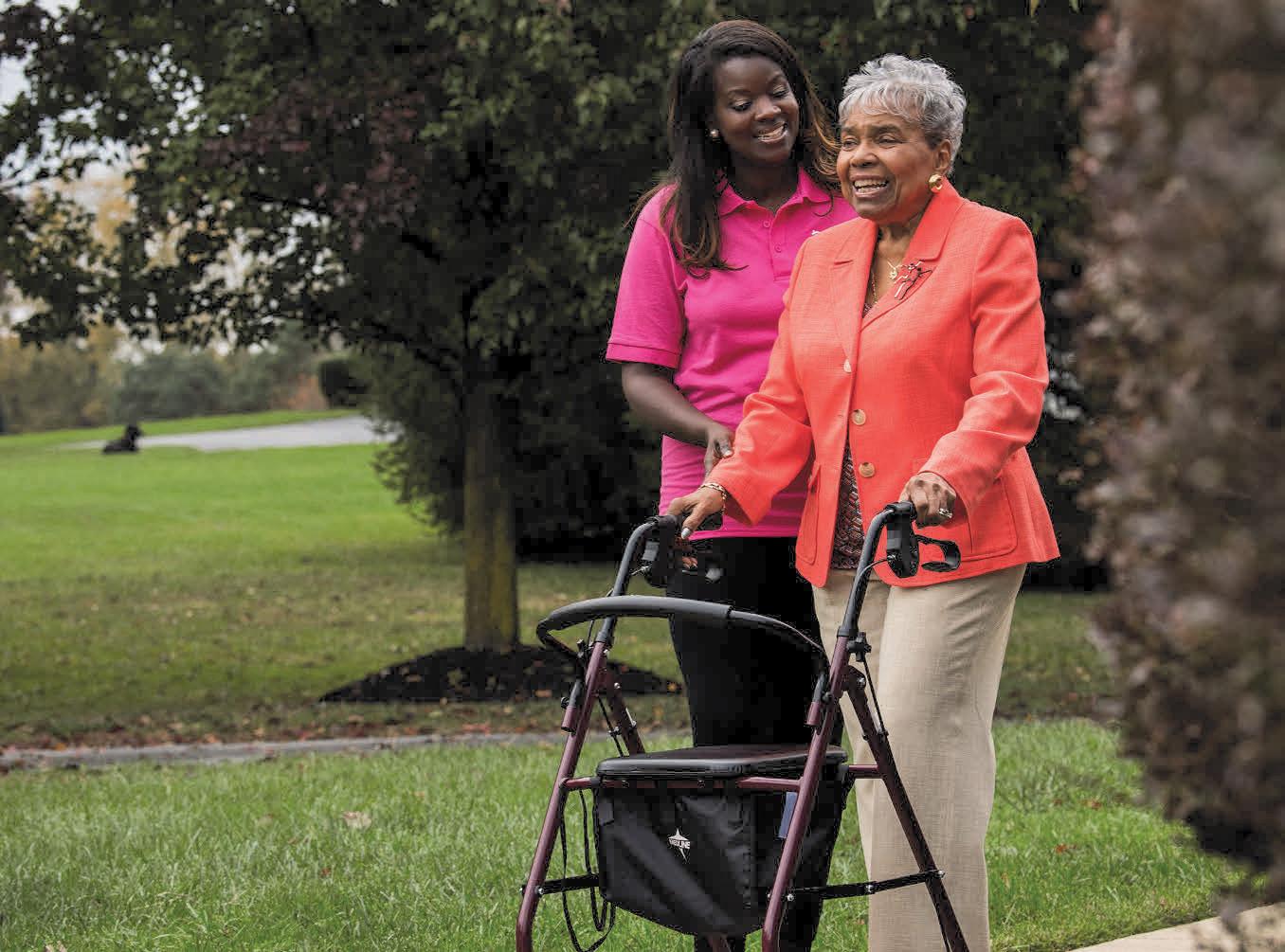
fitness classes like yoga and Pilates.
♦ Employ the buddy system. Seniors also can enlist friends and family members to join them when they exercise. Encourage neighbors or friends to come along to the gym for a favored fitness class, or invite friends and family on hiking excursions or daily walks. The National Institute on Aging notes that turning exercise into a social activity is a great way for seniors to maintain their motivation
to exercise.
♦ Track your progress and celebrate your successes. The NIA touts the benefits of tracking progress when trying to stay motivated to exercise. As exercise efforts pay increasing dividends, seniors may find it’s no longer hard to stay motivated. Success can be measured in various ways. Some might aspire to produce healthier blood test results at the doctor’s office, while others may hope to lose a few pounds. However you define success, celebrate when you achieve your fitness goals. Rewards such as a spa day, a night out at the theater or a weekend getaway can provide all the motivation you need to stay the course.
♦ Be flexible with your routine. Mobility issues and other physical limitations may affect seniors. But such issues need not prevent aging men and women from exercising, even if it does mean they won’t be able to hit the gym four or five days per week. Mix up your routine so you can still exercise even if physical limitations make traditional workout routines more challenging. Go for nature walks on days when your body needs a break from strength-training, and check the forecast at the start of each week so you can rearrange your routine if Mother Nature makes outdoor exercise impossible on certain days.

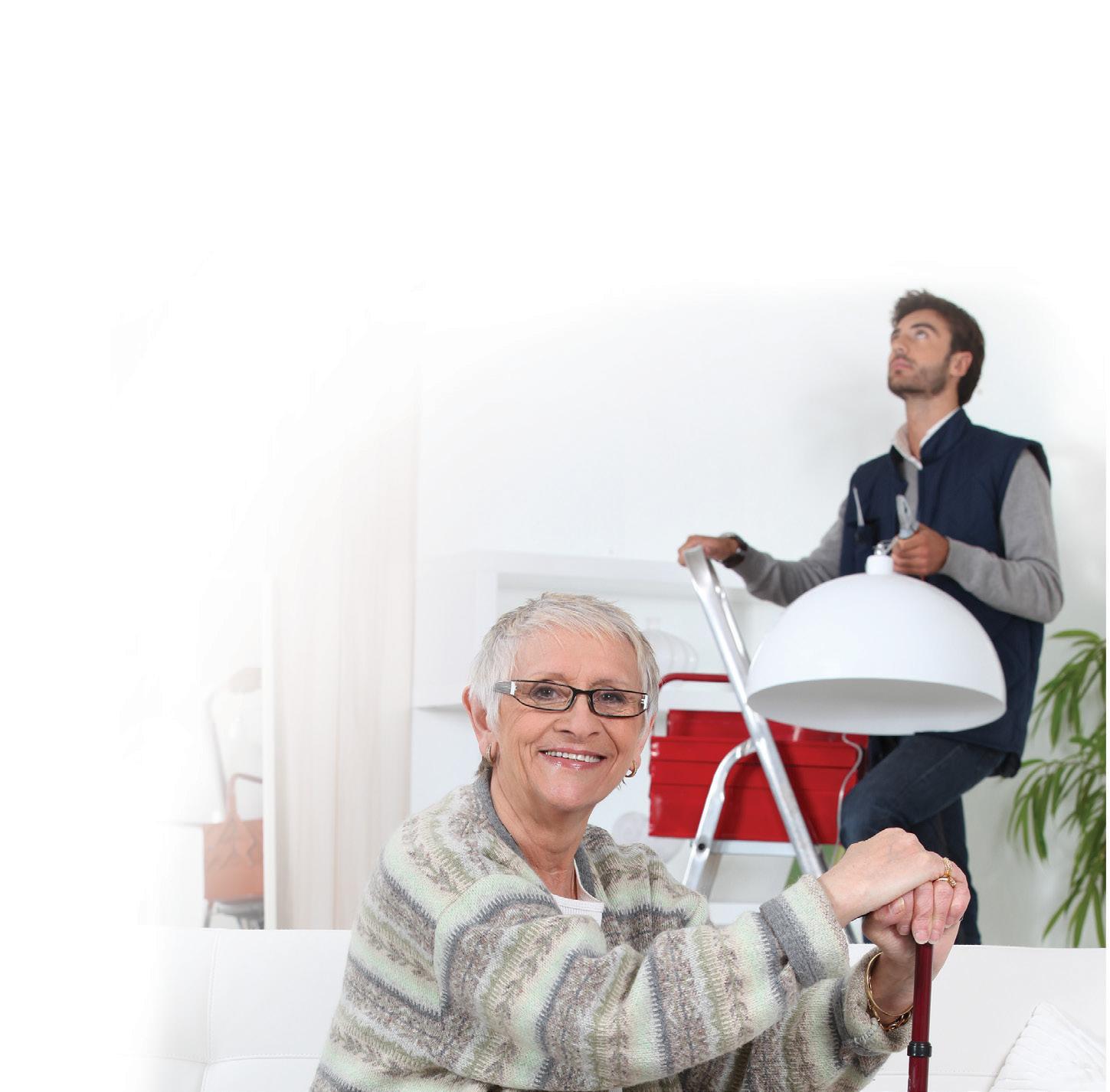









nutritious diet is a key component of a healthy lifestyle. And for seniors, the right diet can be a key part of treating any number of health issues. Changing one’s diet may be something seniors can consider if they are feeling sluggish.
Food can be a helpful ally for seniors dealing with fatigue and low energy. WebMD says eating a balanced diet is one of the ways to improve low energy levels, and that a balanced diet should include certain foods that are natural energy boosters.
Switching refined grains for whole grains is a good way to boost energy. These grains are full of complex carbohydrates that help boost metabolism and provide energy. They’ll also work longer in the body than the more refined options. Swap out “white” products like breads and rices for whole wheat or brown rice.
While protein does not give the same quick boost of energy as a high carbohydrate meal, it will help fuel the body and keep a person feeling full longer. According to Discovery Senior Living, protein helps increase concentra-


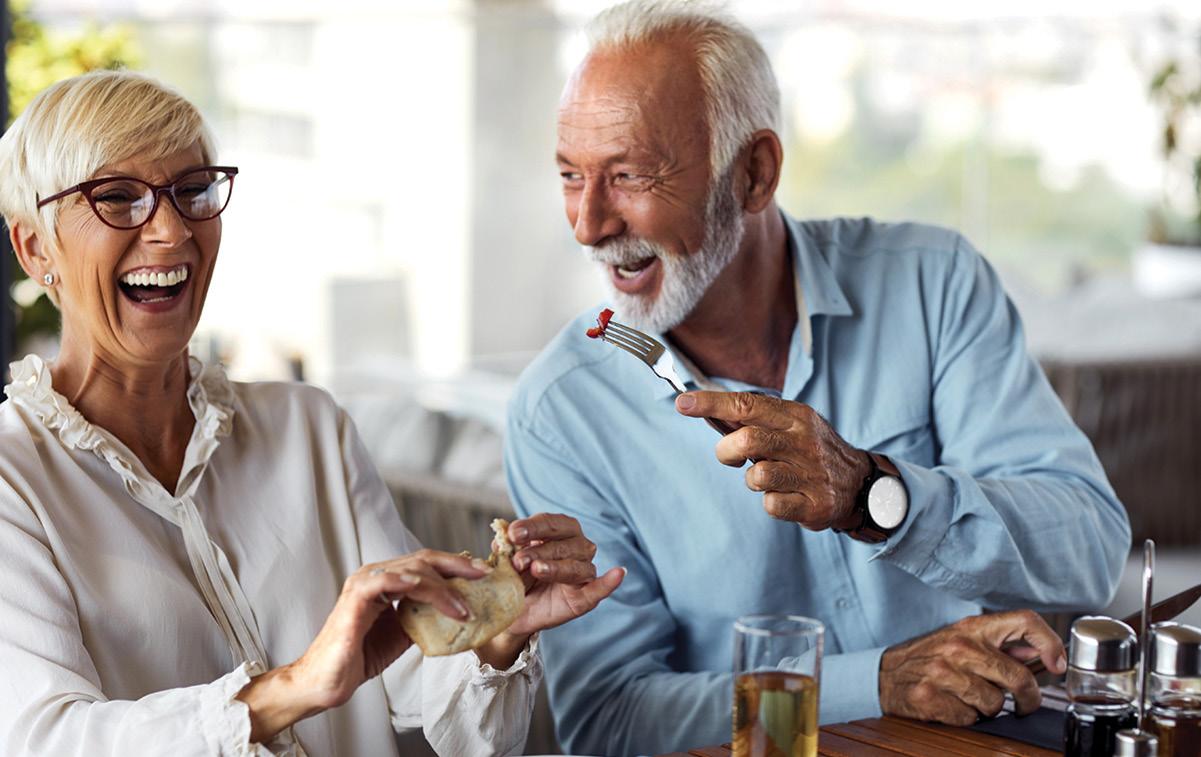
tion levels, produces stronger muscles and helps maintain optimal blood sugar levels. Chicken, tuna and legumes are some notable protein sources.
Most nuts are a complete package that provide healthy fats, proteins and amino acids that are good for the body. The fiber and carbohydrates in nuts digest more slowly and help provide a steady supply of energy throughout the day. Replace croutons in salads with nuts, or
sprinkle some nuts on oatmeal at breakfast.
foods
help seniors restore energy levels and promote overall health.
Berries, sweet potatoes, dark, leafy greens, and other produce are low-calorie, low-sugar options for snacks and sides that boost health. They’re full of fiber and antioxidants that can ward off illness, and they can provide an energy boost as well. Berries and vegetables can be added to smoothies or salads.
– Courtesy of Metro Creative

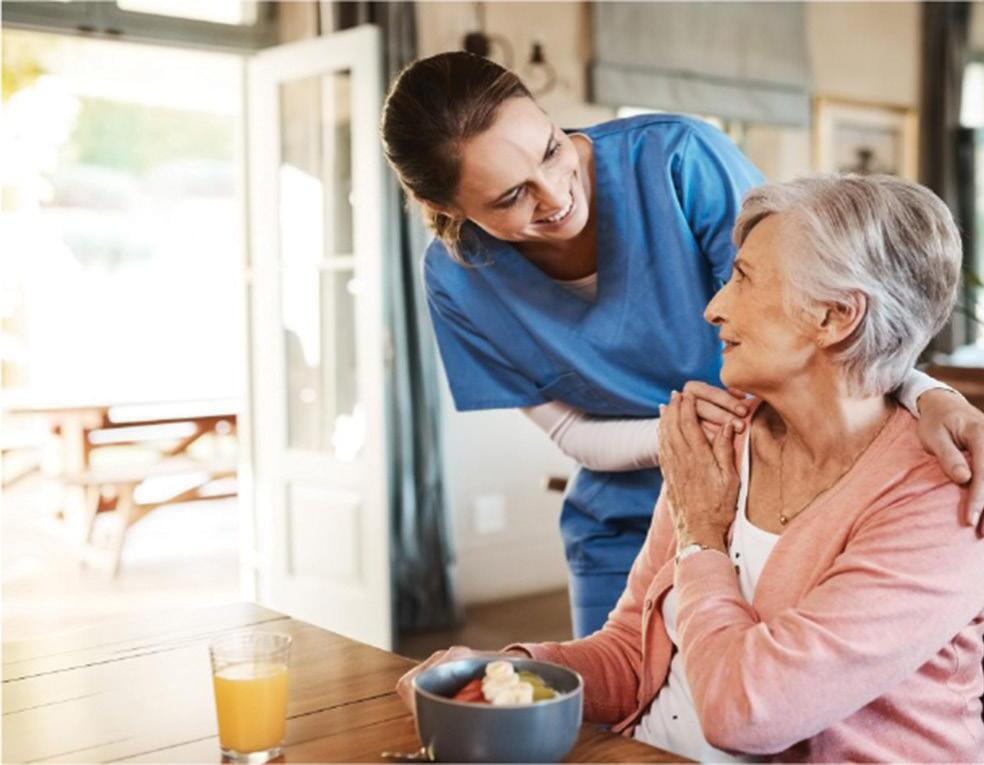



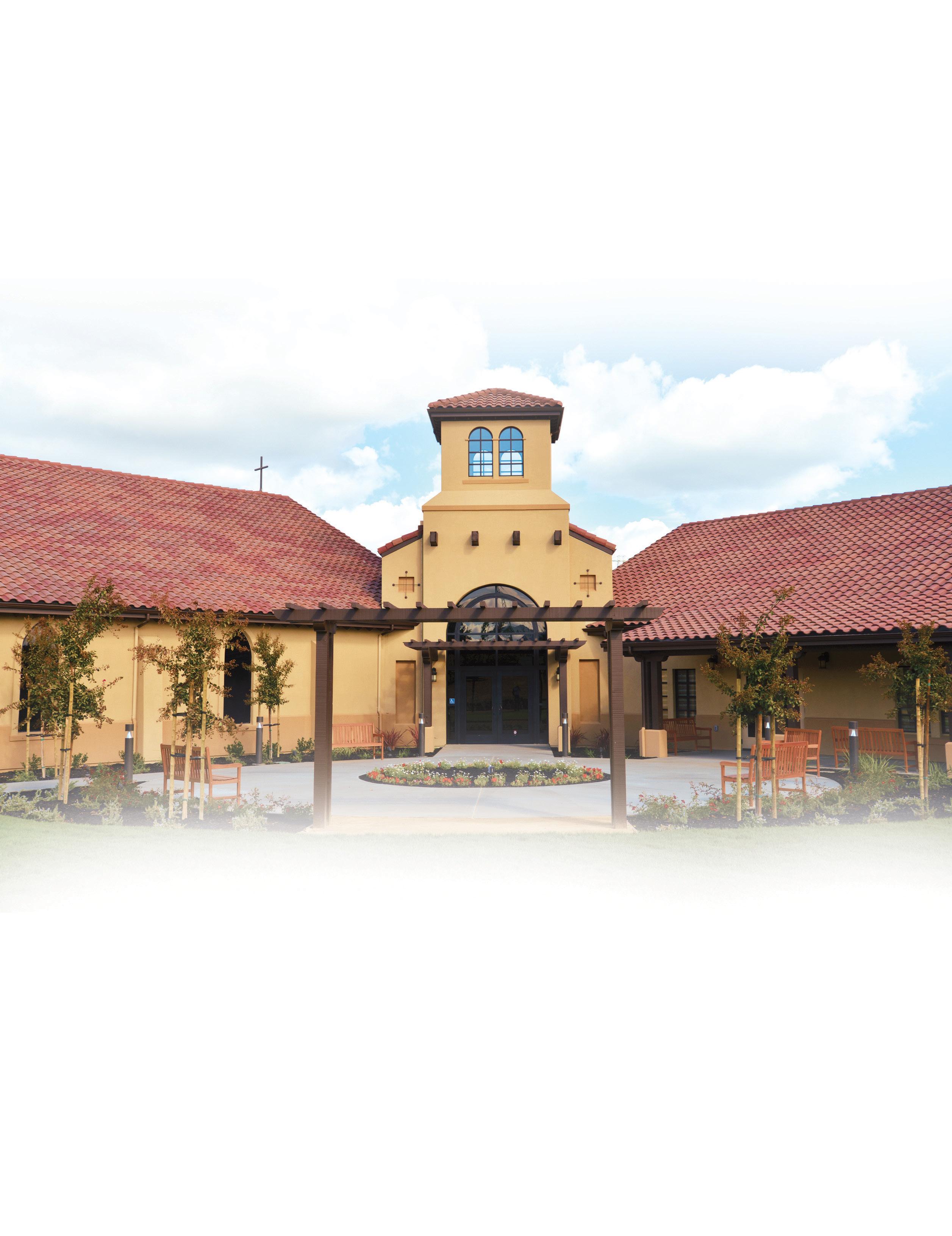


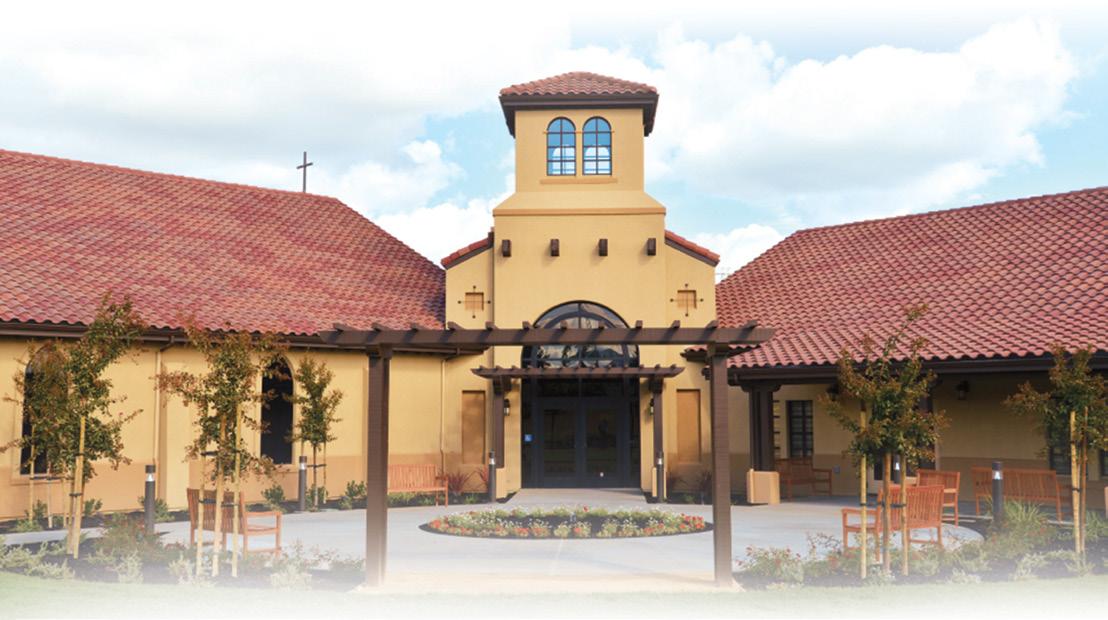

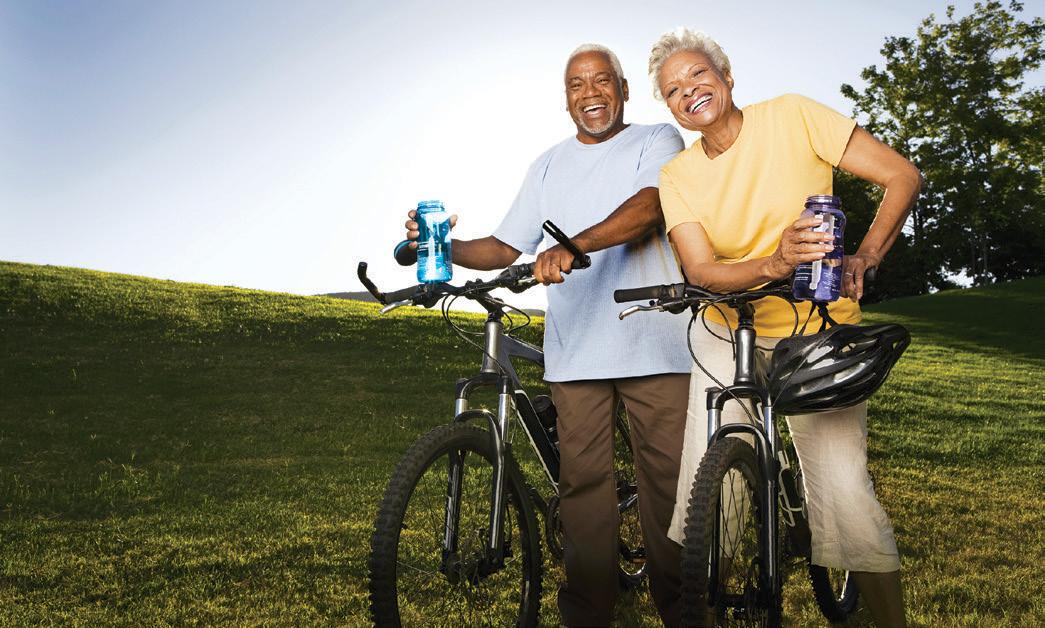






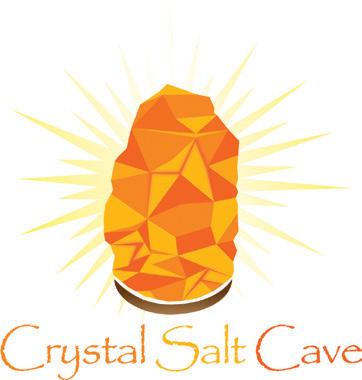
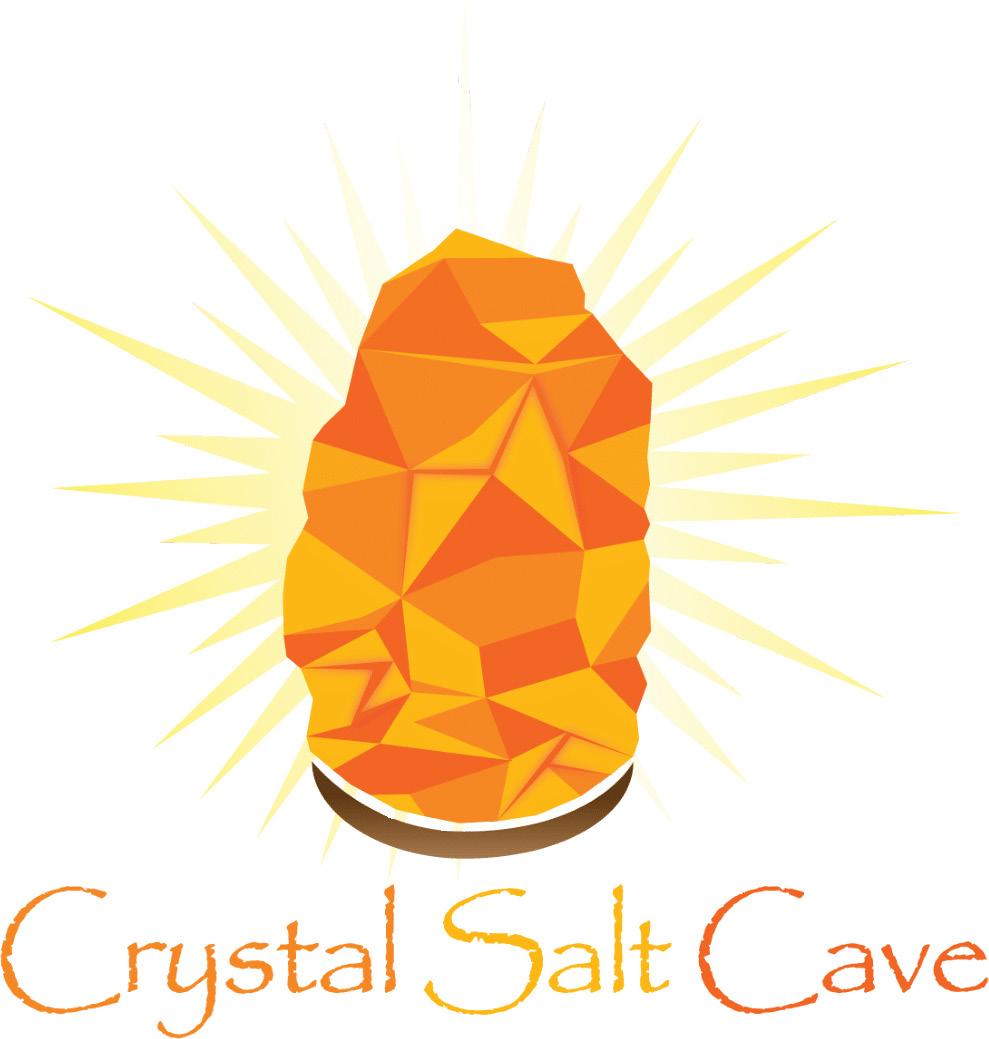

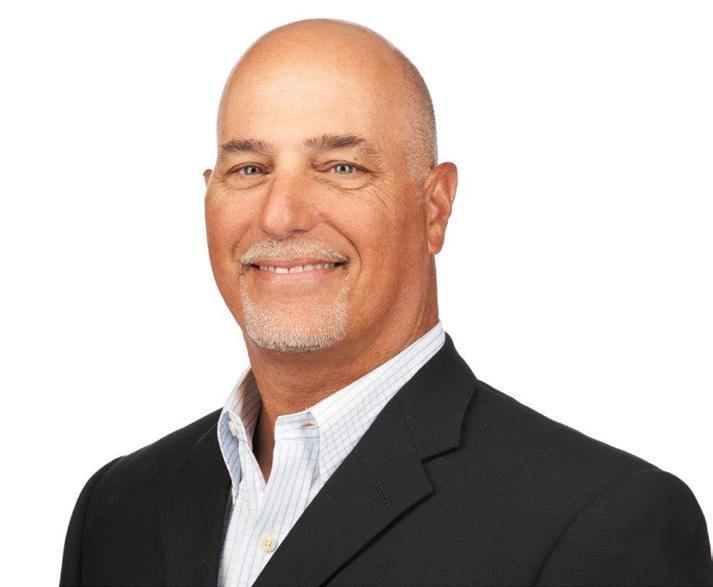

Small changes during heart health awareness month can help

FLate last year, the America’s Health
report highlighted a startling
heart disease is one of eight chronic conditions that has reached record highs since the report began tracking health and wellbeing in the United States.
Despite a decline in deaths tied to heart disease, it remains the leading cause of death among men and women. Heart disease costs the U.S. health system $216 billion per year, according to the Centers for Disease Control and Prevention, not including an additional $147 billion in lost wages and productivity.
Risk factors for heart disease include conditions like high blood pressure,

high cholesterol and obesity as well as unhealthy behaviors such as physical inactivity, smoking and alcohol abuse.
In California, 25.4 percent of adults over age 65 qualified as physically inactive while more than 23.9 percent are obese and just over 7 percent smoke, according to the America’s Health Rankings 2023 Senior report.
According to the American Heart Association (AHA), there are immediate steps you can take to help you live a longer, healthier life and help reduce your risk of heart disease and stroke.
First, eat a healthier diet. Center your eating plan around vegetables, fruits, whole grains, legumes, nuts, and fish. Limit sweetened drinks, added sugars, processed meats, sodium and saturated fats.
Second, be physically active and keep any eye on your weight. Adults should aim for at least 150 minutes of moderateintensity aerobic activity or 75 minutes of vigorous activity each week.
Lastly, stop smoking, or don’t start. If you don’t think you can quit for good on your own, ask for help and talk to your healthcare provider.
For more helpful health and wellness information, visit UHCMedicareNewsroom.com.
– Courtesy of Metro Creative



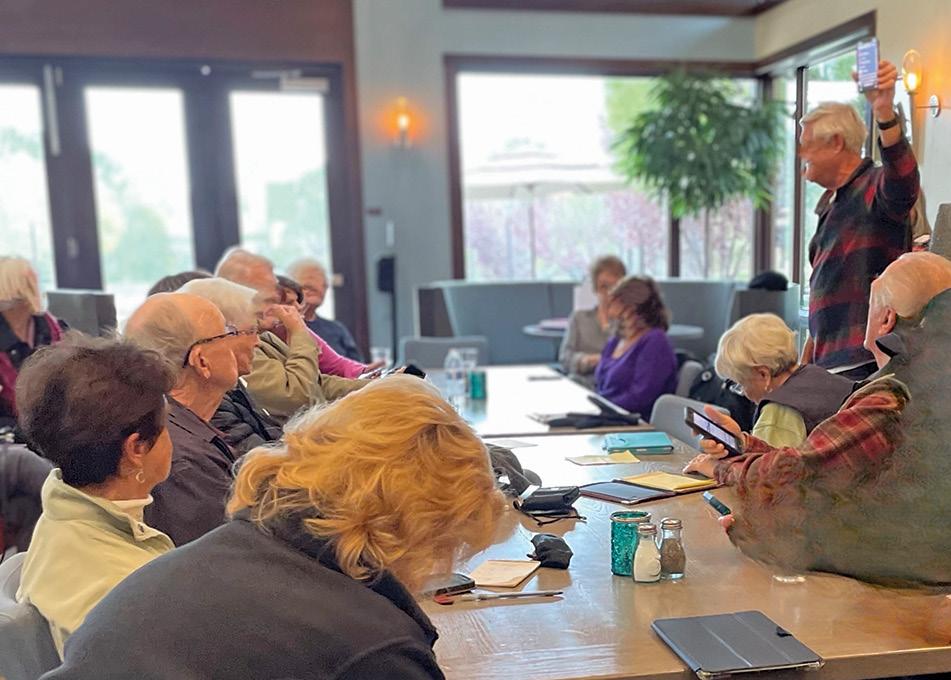
in handy during an emergency.
The other important feature she helps seniors with is how to enable location sharing to keep track of their loved ones.
“I also teach seniors the importance of safety, how to prevent themselves from getting scammed,” Rodrigues said.
In her basic iPhone class, Rodrigues reminds people that their phone is not just a device to make phone calls and emails because it comes with a slew of other features and tools.
“I remind people that we’ve had a lot of other things (in the past) other than a phone,” she said. “For example, we used yellow pages to look up phone numbers, we used tape measures, calculators, newspapers, street maps....now everything is on the phone.”
Rodrigues also teaches ukulele for
beginners at the senior center. She started playing the ukulele when she was 10 years old after her grandfather, who lived in Hawaii, sent her the instrument.
“Music calms me down and it’s close to my heart. The ukulele is one of the easiest instruments to teach and play.”
“I keep a ukulele in my car all the time and if I go someplace beautiful, I just sit there, play music, and enjoy nature,” she added.
Rodrigues’ beginners’ class for ukulele will also be playing for a lunch group at the senior center soon.
“It’s like their recital session,” she said.
Rodrigues plans to have intermediate classes for iPhone and Ukulele in the summer, but is in the midst of finalizing the dates at the senior activity center.
For more information, visit https:// www.taug.org/about or https://bit. ly/48oacZi.

